The Tree of Life
By Michael Ladda What can we learn about the tree of life from scripture? There are more references to the tree of life or a tree of life than we might be aware of. (Revelation 2:7) 7He who has an ear, let him hear what the Spirit says to the assemblies. To him who overcomes I shall give to eat from the tree of life, which is in the midst of the paradise of Elohim. The tree will be in the future paradise of Elohim. We also know that it was in the midst of the garden of Eden: (Genesis 2:9) 9And out of the ground YHVH Elohim made every tree grow that is pleasant to the sight and good for food, with the tree of life in the midst of the garden and the tree of the knowledge of good and evil. And if one ate from it, they would live forever: (Genesis 3:22-24) 22And YHVH Elohim said, “See, the man has become like one of Us, to know good and evil. And now, lest he put out his hand and take also of the tree of life, and eat, and live forever...” 23so YHVH Elohim sent him out of the garden of Eden to till the ground from which he was taken, 24and He drove the man out. And He placed keruvim at the east of the garden of Eden, and a flaming sword which turned every way, to guard the way to the tree of life. Wisdom There is a reference to a tree of life in Proverbs: (Proverbs 3:13-22) 13Blessed is the man who has found wisdom, And the man who gets understanding; 14For the gain from it is better Than gain from silver, And its increase than fine gold. 15She is more precious than rubies, and all your delights are not comparable to her. 16Length of days is in her right hand, Riches and esteem in her left hand. 17Her ways are pleasant ways, and all her paths are peace. 18She is a tree of life to those taking hold of her, and blessed are all who retain her. 19YHVH founded the earth by wisdom; He established the heavens by understanding; 20By His knowledge the depths were broken up, and clouds drop down dew. 21My son, let them not depart from your eyes; Watch over sound wisdom and discretion; 22Then they become life to your being and an adorning to your neck. Wisdom is a tree of life and connected with long life. Wisdom is further defined in Job and Psalms: (Job 28:28) 28And He said to man, ‘See, the fear of YHVH, that is wisdom, and to turn from evil is understanding.’ (Psalm 111:10) 10The fear of YHVH is the beginning of wisdom, all those doing them have a good understanding. His praise is standing forever. The fear of YHVH is also defined in proverbs: (Proverbs 14:27) 27The fear of YHVH is a fountain of life, to turn away from the snares of death. (Proverbs 8:13) 13The fear of YHVH is to hate evil. I have hated pride and arrogance, and the evil way, and the perverse mouth. So, wisdom, the fear of YHVH, and hating evil are all like a tree of life and also a fountain of life. (James 3:17) 17But the wisdom from above is first pure, then peaceable, gentle, open to reason, full of mercy and good fruits, impartial and sincere. Wisdom is connected to many good things from the Spirit, including good fruits. The Fruit of the Righteous This is connected back to a tree of life in Proverbs: (Proverbs 11:30) 30The fruit of the righteous is a tree of life, and he who is winning lives is wise. (Isaiah 3:10) 10Say to the righteous it is well, for they eat the fruit of their doings. This good fruit, the fruit of righteousness, is our deeds, what we do. (Philippians 1:9-11) 9And this I pray, that your love might extend more and more in knowledge and all discernment, 10for you to examine the matters that differ, in order to be sincere, and not stumbling, until the day of Messiah, 11being filled with the fruit of righteousness, through Yeshua Messiah, to the esteem and praise of Elohim. The fruit of righteousness comes through Yeshua Messiah. It is also connected with discernment and diligent examination of different matters of morality. (Hebrews 12:11) 11And indeed, no discipline seems pleasant at the time, but grievous, but afterward it yields the peaceable fruit of righteousness to those who have been trained by it. The fruit of righteousness comes from being trained by Elohim’s discipline. A Desire Come True (Proverbs 13:12) 12Expectancy drawn out makes the heart sick, but a desire come true is a tree of life. (Proverbs 13:19) 19A desire fulfilled is sweet to the soul, but to turn away from evil is an abomination to fools. What greater desire does humanity have than to enter eternal life in the kingdom of Elohim? Those who will not turn away from evil, will not have their desire fulfilled. A Healing Tongue (Proverbs 15:4) 4A healing tongue is a tree of life, but perverseness in it crushes the spirit. (Proverbs 12:18) 18Rash speaking is like piercings of a sword, but the tongue of the wise is healing. Our words are connected to the tree of life. What are we speaking to others? Words of life to build each other up? Words that heal the weary? Or are we speaking rash words, harsh words, to tear each other down? The River of the Water of Life (Revelation 22:1-3) 1And he showed me a river of water of life, clear as crystal, coming from the throne of Elohim and of the Lamb. 2In the middle of its street, and on either side of the river, was the tree of life, which bore twelve fruits, each tree yielding its fruit every month. And the leaves of the tree were for the healing of the nations. 3And no longer shall there be any curse, and the throne of Elohim and of the Lamb shall be in it, and His servants shall serve Him. The tree of life is on either side of the river of the water of life that flows from the throne of Elohim. There are twelve fruits yielding its fruit every month and the leaves are for the healing of the nations. (Revelation 21:6) 6And He said to me, “It is done! I am the ‘Alpha’ and the ‘Omega’, the Beginning and the End. To the one who thirsts I shall give of the fountain of the water of life without payment. This water of life cannot be bought, it is a free gift from Elohim. (Isaiah 48:18) 18If only you had listened to My commands! Then your peace would have been like a river, and your righteousness like the waves of the sea. A symbolic river of peace to those who listen to the commands of Elohim. Here is where things get interesting: (Ezekiel 47:1-12) 1And he (the angel showing Ezekial the vision) turned me back to the door of the House. And look, water was flowing from under the threshold of the House* (meaning the Temple) toward the east, for the House faced east, and the water was flowing from under the right side of the House, from the south of the slaughter-place. 2And he led me out by way of the north gate, and took me round on the outside to the outer gate facing east. And look, water trickling out on the right side. 3As the man went out to the east with the line in his hand, he measured one thousand cubits, and he made me pass over into water, water to the ankles. 4And he measured one thousand and made me pass over into water, water to the knees. And he measured one thousand and made me pass over, water to the loins. 5And he measured one thousand, a stream that I was unable to pass over, for the water had risen, water to swim, a stream that is not passed over. 6And he said to me, “Son of man, have you seen this?” And he led me and brought me back to the bank of the stream. 7When I returned, then look, along the bank of the stream were very many trees on one side and the other. 8And he said to me, “These waters are flowing toward the eastern country, and go down into the Aravah, and enter the sea, being made to flow into the sea, and the waters shall be healed. 9“And it shall be that every swarming creature, wherever the stream goes, shall live. And there shall be very many fish, for these waters shall go there, and they are healed. And wherever the stream flows all shall live. 10“And it shall be that fishermen stand along it, from En Gedi to En Eglayim, being places for spreading their nets. Their fish is to be of the same kind as the fish of the Great Sea, very many. 11“Its swamps and marshes shall not be healed, they shall be given over to salt. 12“And by the bank of the stream, on both sides, grow all kinds of trees used for food, whose leaves do not wither and fruit do not fail. They bear fruit every new moon, because their water flows from the set-apart place. And their fruit shall be for food, and their leaves for healing.” Again, we see this water flowing from the House which is a reference to the Temple, from the set-apart place. Instead of being called by the Hebrew word for a river, it is called a stream, which is more like a torrent of water. There are trees on either side of it, the waters heal, the leaves of the trees are for healing, they bear fruit every new moon meaning month. Very similar to (Revelation 22). Then it changes focus to the inheritance of Yisrael and those who sojourn with them: (Ezekiel 47:13-14) 13Thus said the Master YHVH, “This is the border by which you inherit the land, according to the twelve tribes of Yisrael, two portions for Yoseph. 14“And you shall inherit it, each one the same as his brother. For I lifted My hand in an oath to give it to your fathers, and this land shall fall to you as your inheritance. Next the new borders of Yisrael are laid out and the allotment of the tribes. Skipping down to (verse 21): (Ezekiel 47:21-23) 21“And you shall divide this land among yourselves according to the tribes of Yisrael. 22“And it shall be that you divide it by lot as an inheritance for yourselves, and for the strangers who sojourn in your midst and who bear children among you. And they shall be to you as native-born among the children of Yisrael – with you they have an inheritance in the midst of the tribes of Yisrael. 23“And it shall be that in whatever tribe the stranger sojourns, there you give him his inheritance,” declares the Master YHVH. This section of Ezekiel describes a future time, after the description of the coming Temple is given and the water flowing from it being surrounded by these trees, we see sojourners inheriting the land, being as native born Yisraelites. Interesting. Living Water Also prophesying of a future event, Zechariah was inspired to write: (Zechariah 14:8) 8And in that day it shall be that living waters flow from Yerushalayim, half of them toward the eastern sea and half of them toward the western sea, in summer as well as in winter. Since the tree of life is interconnected with the river of the waters of life or living waters, let’s look at some references from Yeshua about living waters: (John 7:37-39) 37And on the last day, the great day of the festival, Yeshua stood and cried out, saying, “If anyone thirsts, let him come to Me, and let him who believes in Me drink. 38“As the Scripture said, out of His innermost shall flow rivers of living water.” 39And this He said concerning the Spirit, which those believing in Him were about to receive, for the Set-apart Spirit was not yet given, because Yeshua was not yet esteemed. Yeshua links rivers of living water flowing, to the Set-Apart Spirit, given to the believers. Could be a reference to Isaiah: (Isaiah 44:3) 3For I pour water on the thirsty, and floods on the dry ground. I pour My Spirit on your seed, and My blessing on your offspring, Yeshua also connects the living water to everlasting life: (John 4:10-14) 10Yeshua answered and said to her, “If you knew the gift of Elohim, and who it is who says to you, ‘Give Me to drink,’ you would have asked Him, and He would have given you living water.” 11The woman said to Him, “Master, You have no vessel, and the well is deep. From where, then, do You have living water? 12Are You greater than our father Yaaqov, who gave us the well, and drank from it himself, and his sons, and his cattle? 13Yeshua answered and said to her, “Everyone drinking of this water shall thirst again, 14but whoever drinks of the water I give him shall certainly never thirst. And the water that I give him shall become in him a fountain of water springing up into everlasting life.” (Revelation 7:17) 17because the Lamb who is in the midst of the throne shall shepherd them and lead them to fountains of waters of life. And Elohim shall wipe away every tear from their eyes.” Yeshua is the one who leads us to these waters that give life and the Spirit. This all reminds me of my favorite Psalm: (Psalm 1) 1Blessed is the man who shall not walk in the counsel of the wrong, and shall not stand in the path of sinners, and shall not sit in the seat of scoffers, 2but his delight is in the Torah of YHVH, and he meditates in His Torah day and night. 3For he shall be as a tree Planted by the rivers of water, that yields its fruit in its season, and whose leaf does not wither, and whatever he does prospers. 4The wrong are not so, but are like the chaff which the wind blows away. 5Therefore the wrong shall not rise in the judgment, nor sinners in the congregation of the righteous. 6For YHVH knows the way of the righteous, but the way of the wrong comes to naught. So, while I believe there will be a physical tree of life and a physical river flowing from the Temple, this is also symbolic of our walk with Elohim. When we choose to walk in the ways of Elohim, and His Torah, we are the trees that drink the river of the spirit that yield good works. We will not die but prosper in our works in Elohim. There is also a possible reference to the tree of life in (Revelation 22:19): (Revelation 22:19) 19and if anyone takes away from the words of the book of this prophecy, Elohim shall take away his part from the Book of Life* (some manuscripts read ‘tree of life’), and out of the set-apart city, which are written in this Book. What did we learn? The tree of life was in the midst of the Garden of Eden. The tree of life is going to be in the paradise of Elohim. If you eat from the tree of life, you will live forever. Wisdom is a tree of life to those who lay hold of her, it is life for your being. The fear of YHVH is wisdom. The hatred of evil is the fear of YHVH. So, the hatred of evil is a tree of life. The wisdom from above is full of good fruits. The fruit of the righteous is a tree of life. The fruit of the righteous is the fruit of our deeds, what we do. The fruit of righteousness comes through Yeshua Messiah. Discipline yields the peaceful fruit of righteousness to us if we have been trained by it. A desire come true is a tree of life. Those who will not turn away from evil, will not have their desire fulfilled. A healing tongue is a tree of life. The wise have a healing tongue and don’t speak rash words. The tree of life has twelve kinds of fruit, yielding its fruit each month. The leaves of the tree of life are for the healing of the nations. The tree of life is on both sides of the river of the water of life. Elohim will give us the water of life for free. The water of life flows from the throne of Elohim and of the Lamb. Water comes from below the threshold of the Temple toward the east and the water flows down from below the south end of the threshold of the Temple, south of the altar. This water flows toward the eastern region and goes down into the Arabah and enters the sea at the Gulf of Aqaba (in Hebrew it is the Gulf of Eilat meaning gulf of a grove of tall trees); the sea will become fresh. Wherever the river goes, every living creature that swarms will live. All kinds of trees will grow near this river and will bear fruit every month and the leaves will be for healing. The land of Yisrael will be divided according to their tribes as an inheritance for Yisrael and for the sojourners and their children. The sojourners shall be as native-born children of Yisrael. The sojourners shall be allotted an inheritance among the tribes of Yisrael. In whatever tribe the sojourner resides, there they shall be assigned an inheritance. Yeshua said that whoever believes in him, as the Scripture has said, ‘Out of his heart will flow rivers of living water.’ speaking about the Set-Apart Spirit that we receive. Yeshua said we can ask of him living water that will become in us a spring of water welling up to eternal life. Yeshua the Lamb of Elohim will be our shepherd, and he will guide us to springs of living water, and Elohim will wipe away every tear from our eyes. If we delight in the Torah of YHVH and meditate on His Torah day and night. We shall be like a tree planted by streams of water that yields its fruit in its season, and its leaf does not wither. In all that we do, we shall prosper. Conclusion If we desire the tree of life and living water, we must ask for wisdom from above, that comes through the Set-Apart Spirit and Yeshua Messiah. We will begin to hate evil and fear disappointing our heavenly Father. If we delight in His Torah and meditate on it, Elohim will discipline us by it, and we will bear the fruit, the deeds, of righteousness. We will be healed by it and speak with a healing tongue. Yeshua will be our shepherd and Elohim will wipe away our every tear. If we sojourn with Yisrael we will be given an inheritance among the tribes of Yisrael and be as native Yisraelites. We will be given eternal life, and we will be able to stand in the judgement with the righteous.
0 Comments
Covetousness and the Rich Men of Luke (231125 SCSF)
What does covetousness mean to you? We are told in the 10 commandments that “You shall not covet your neighbor’s house; you shall not covet your neighbor’s wife, nor his male servant, nor his female servant, nor his ox, nor his donkey, nor anything that is your neighbor’s. (Ex20:17)” I think in general we know from this, and our understanding of the word, that we should not desire our neighbor’s goods. But is there more to it? Yeshua raised the commandments to a higher, spiritual plain. In the Sermon on the Mount, Yeshua gave us several examples in which He magnified and expanded the commandments to a more spiritual level. Being angry at someone without a cause can be murder. Lusting for a woman can be adultery. But Yeshua didn’t give added spiritual meaning to the commandments only in the Sermon on the Mount. And there is one remarkable section in the book of Luke where Yeshua discusses covetousness in a way perhaps you have not focused on. And He does so using several parables and real life examples. So today, I’m going to show you how Yeshua expanded the tenth commandment with the help of the 5 rich men of the book of Luke. Luke 12: 13 Then one from the crowd said to Him, “Teacher, tell my brother to divide the inheritance with me.” 14 But He said to him, “Man, who made Me a judge or an arbitrator over you?” Yeshua then addresses the crowd: 15 And He said to them, “Take heed and beware of covetousness, for one’s life does not consist in the abundance of the things he possesses.” As we will see, this was a loaded statement; one that He proceeds to elaborate on to cast a deeper and more spiritual light on the subject of covetousness, and a meaning that we do not always associate with the 10th commandment. And to illustrate His point, He first relates a parable and introduces us to our first rich man: 16 Then He spoke a parable to them, saying: “The ground of a certain rich man yielded plentifully. 17 And he thought within himself, saying, ‘What shall I do, since I have no room to store my crops?’ [You might think about this yourself. What would you do if your ground yielded abundantly?] 18 So he said, ‘I will do this: I will pull down my barns and build greater, and there I will store all my crops and my goods. 19 And I will say to my soul, “Soul, you have many goods laid up for many years; take your ease; eat, drink, and be merry.”’ 20 But God said to him, ‘Fool! This night your soul will be required of you; then whose will those things be which you have provided?’ 21 “So is he who lays up treasure for himself, and is not rich toward God.” The commandment on coveting, as related in Exodus and Deuteronomy, says: (this time from Deu 5:21 NKJV) "'You shall not covet your neighbor's wife; and you shall not desire your neighbor's house, his field, his manservant, his maidservant, his ox, his donkey, or anything that is your neighbor's.'" In short, we are not to covet our neighbor’s stuff. But this rich man was consumed with laying up what his own ground had produced. Think about it. This “stuff” didn’t belong to his neighbor, and yet Yeshua gave this parable to illustrate His statement in verse 15: “Take heed and beware of covetousness, for one’s life does not consist in the abundance of the things he possesses.” As is often the case, Yeshua is elaborating on the commandment. Just as hatred in your heart can be murder, and lust for a woman can be adultery, so laying up treasure for yourself can be covetousness. And when we realize what He is saying, we can see why this is so. But before we discuss this, note that Yeshua didn’t stop with the parable: 22 Then He said to His disciples, “Therefore I say to you, do not worry about your life, what you will eat; nor about the body, what you will put on. 23 Life is more than food, and the body is more than clothing. 24 Consider the ravens, for they neither sow nor reap, which have neither storehouse nor barn; and God feeds them. Of how much more value are you than the birds? 25 And which of you by worrying can add one cubit to his stature? 26 If you then are not able to do the least, why are you anxious for the rest? 27 Consider the lilies, how they grow: they neither toil nor spin; and yet I say to you, even Solomon in all his glory was not arrayed like one of these. 28 If then God so clothes the grass, which today is in the field and tomorrow is thrown into the oven, how much more will He clothe you, O you of little faith? 29 “And do not seek what you should eat or what you should drink, nor have an anxious mind. 30 For all these things the nations of the world seek after, and your Father knows that you need these things. 31 But seek the kingdom of God, and all these things shall be added to you. 32 “Do not fear, little flock, for it is your Father’s good pleasure to give you the kingdom. 33 Sell what you have and give alms; provide yourselves money bags which do not grow old, a treasure in the heavens that does not fail, where no thief approaches nor moth destroys. 34 For where your treasure is, there your heart will be also. I’m going to suggest that all of this instruction was inspired by the request of the man in the crowd, and Yeshua was using this as a teaching opportunity regarding covetousness. And with that in mind, several observations can be made from the parable and the teaching that followed: 1.Hoarding goods as this rich man did places us in danger of not being rich toward God, as He said in verse 21. Paul in Col 3:5, and other places, equates covetousness with idolatry. And this applies as much toward honestly gained wealth as it does to desiring what our neighbor has. We can make these goods—our own goods, not our neighbors--into an idol, as this rich man did, and be guilty of covetousness. Laying up treasure for ourselves can distract us from our relationship to God. 2.Laying up treasure, as this rich man, can make us complacent. We no longer need God. We have what we need, or at least we think we do. The rich man wanted to take his ease, eat, drink, and be merry. Again, laying up treasure can make us complacent so we no longer rely on God. 3.The very act of striving to lay up for ourselves can generate stress and worry over whether we have enough (v22-23). It can destroy our faith (v28), and distract us from what is really important. Being anxious over what we think we lack, or more likely about what we think we might lose, actually leads to covetousness, trying to hang on to everything we have. 4.How we handle money and wealth is a test God has placed before us, or some of us anyway. And compared to the rest of the world which is not as wealthy as we tend to be, I can say it is a test He has given most of us. And the more we have, the greater the test. The rich man of the parable didn’t fare too well in this regard. This is not the last time He brings up how we handle money as being a test of our character. 5.God is our real benefactor. If we have gained wealth as this man did, it is because God caused the ground to yield plentifully. Or perhaps He causes circumstances to work in our favor, if nothing more obvious than having health enough to gain some wealth. This rich man did not give God thanks, or even acknowledge Him. Do we? 6.But my last point may be the hardest, and the most controversial: It isn’t enough to be thankful to God for what He gives us. God wants, in fact as we will see with the remaining rich men, God requires that we be generous and share what God has given us. The rich man thought these were his goods. But God is telling us that in a real sense they did not all belong to him. At least some belonged to his neighbor, because God intended that they be shared with his neighbor. And failing to give what ought to belong to his neighbor effectively made him guilty of coveting his neighbor’s stuff. It is this last point that Yeshua comes back to repeatedly and the one we are going to dwell on the most. So to summarize the lesson from our first rich man: The conclusion of the parable talks about “he who lays up treasure for himself, and is not rich toward God.” Then Yeshua goes further and tells us in verse 34 “where your treasure is, there your heart will be also.” We are not even supposed to worry about hoarding food and clothing (let alone luxuries). God will take care of us. He tells us explicitly in verse 33 to sell what we have and give to the poor. To not worry so much about whether we have enough, but to have faith in God. I’m not saying to ignore the basic needs of our life, but God has promised to provide them, so we are not to worry about them to the point where we place God second, nor ignore the needs of our neighbor. In the chapters that follow, this subject comes up frequently. In chapter 14 for example is a dinner at a Pharisee’s house: Luke 14:12 Then He also said to him who invited Him, “When you give a dinner or a supper, do not ask your friends, your brothers, your relatives, nor rich neighbors, lest they also invite you back, and you be repaid. 13 But when you give a feast, invite the poor, the maimed, the lame, the blind. 14 And you will be blessed, because they cannot repay you; for you shall be repaid at the resurrection of the just.” Strong and powerful words that illustrate this same concept. Yeshua was instructing the Pharisee, and all in attendance, and us, to be generous to those who are poor and in need. And not to even expect a reward in this life for doing so. But I want to move ahead now to our second rich man, found in Luke 16. The chapter starts with a very odd parable about a rich man who has heard that his steward has not been dealing faithfully with his master’s goods. Being informed that he is going to be removed from his job, the steward then proceeds to cut deals with the master’s debtors. The master hears about this, and, while we might expect that he would be furious, all we are told of his reaction is that he commends the steward for dealing shrewdly so that he would not find himself out on the street. And then Yeshua adds these comments: 9 “And I say to you, make friends for yourselves by unrighteous mammon, that when you fail, they may receive you into an everlasting home. 10 He who is faithful in what is least is faithful also in much; and he who is unjust in what is least is unjust also in much. 11 Therefore if you have not been faithful in the unrighteous mammon, who will commit to your trust the true riches? 12 And if you have not been faithful in what is another man’s, who will give you what is your own? 13 “No servant can serve two masters; for either he will hate the one and love the other, or else he will be loyal to the one and despise the other. You cannot serve God and mammon.” As I said in one of my points earlier, money can be a test. How do we handle it? If we hoard it as our first rich man did, we are definitely not able to serve God as we should. There are promises in the Bible that God will prosper us when we obey him. Of course, sometimes that might not be fulfilled until the kingdom. But if and when God blesses us in this life, remember God is watching us to see what we will do with it. Will we be known as generous and sharing? Will we deal faithfully with what God has entrusted to us? Or will the wealth take over our lives. We cannot serve both God and money. But the story continues: 14 Now the Pharisees, who were lovers of money, also heard all these things, and they derided Him. 15 And He said to them, “You are those who justify yourselves before men, but God knows your hearts. For what is highly esteemed among men is an abomination in the sight of God. Yeshua does not speak highly of those who are lovers of money, instead of God. And then Yeshua proceeds to give them a parable, involving our third rich man: 19 “There was a certain rich man who was clothed in purple and fine linen and fared sumptuously every day. 20 But there was a certain beggar named Lazarus, full of sores, who was laid at his gate, 21 desiring to be fed with the crumbs which fell from the rich man’s table. Moreover the dogs came and licked his sores. 22 So it was that the beggar died, and was carried by the angels to Abraham’s bosom. The rich man also died and was buried. There follows a discussion with Abraham about the torment the rich man experiences as a result of his failure to be generous and kind toward Lazarus. Once again, this rich man was guilty of covetousness, and would not share what God had given him with his neighbor, a man who lay at his gate just wanting the crumbs from his table that were undoubtedly going to be thrown away anyway. It is interesting that Abraham played such a prominent role in the parable. Abraham was an extremely wealthy man. I don’t know if you have noticed, but Genesis makes a point of telling us how wealthy he was. Genesis 13:2 Abram was very rich in livestock, in silver, and in gold… 6 Now the land was not able to support them, that they might dwell together, for their possessions were so great that they could not dwell together. Genesis 24: 35 The Lord has blessed my master greatly, and he has become great; and He has given him flocks and herds, silver and gold, male and female servants, and camels and donkeys. Yet Abraham allowed Lot to choose the best of the land. He refused to take spoils from the defeat of the kings. He paid full price for a burial cave. And Abraham was eager to do or give up anything God asked of him, including leaving his family in Haran, sending his son Ishmael away when asked to do so, or even sacrificing his son Isaac. In light of all he was willing to give up, is there any doubt what Abraham would have done with his wealth if God had required it of him? This brings us now to our fourth rich man. This one, however, is not a parable. Luke 18:18 Now a certain ruler asked Him, saying, “Good Teacher, what shall I do to inherit eternal life?” 19 So Yeshua said to him, “Why do you call Me good? No one is good but One, that is, God. What did Yeshua mean by this? Was Yeshua saying He wasn’t good? I would like to suggest that He was establishing with this ruler just who He was. That if the ruler considered Him to be a Good Teacher, then he should be looking at Him as being a Teacher from God Himself. If this ruler really sought an answer from God, then that is what he should be expecting, in spite of the fact that Yeshua’s instruction to him was not going to be easy. 20 You know the commandments: ‘Do not commit adultery,’ ‘Do not murder,’ ‘Do not steal,’ ‘Do not bear false witness,’ ‘Honor your father and your mother.’ ” 21 And he said, “All these things I have kept from my youth.” Indeed, this ruler seems to have been diligent to keep the commandments. And Yeshua seems to have known this, as He cited five of the last six commandments about loving your neighbor as yourself. But Yeshua left out one of the commandments—the commandment on coveting. And I suggest in light of what we have read already that He did so deliberately. Because Yeshua then hits him with an answer to the ruler’s question that he was not prepared to receive: 22 So when Yeshua heard these things, He said to him, “You still lack one thing. Sell all that you have and distribute to the poor, and you will have treasure in heaven; and come, follow Me.” [This instruction was almost identical to what was given to the disciples in Luke 12 about not worrying] 23 But when he heard this, he became very sorrowful, for he was very rich. I don’t know how generous this rich man was. Did he tend to hoard his wealth as much as those in the parables Yeshua had related? Or was this just an extreme test that Yeshua decided to put this man through, for our benefit, or the disciples, or the man himself. In any case, Yeshua knew this man had a major flaw in his character, and wasn’t keeping all of the commandments to love his neighbor as himself. And this had the serious potential of keeping him from inheriting eternal life, which is what this ruler had asked about. 24 And when Yeshua saw that he became very sorrowful, He said, “How hard it is for those who have riches to enter the kingdom of God! 25 For it is easier for a camel to go through the eye of a needle than for a rich man to enter the kingdom of God.” 26 And those who heard it said, “Who then can be saved?” 27 But He said, “The things which are impossible with men are possible with God.” Why is it so hard for a rich man to enter the kingdom? Is it not for the very reasons we have already noted? Because it tends to keep them from following and seeking God wholeheartedly? Because wealth becomes an idol? And because it can be hard for a rich man to be as generous as he ought to be? It can be hard to be rich and not be guilty of breaking the 10th commandment against covetousness. 28 Then Peter said, “See, we have left all and followed You.” 29 So He said to them, “Assuredly, I say to you, there is no one who has left house or parents or brothers or wife or children, for the sake of the kingdom of God, 30 who shall not receive many times more in this present time, and in the age to come eternal life.” Once again, God will provide for our needs, even if we have to leave all behind. But, there is one more rich man in the book of Luke: Luke 19:1 Then Yeshua entered and passed through Jericho. 2 Now behold, there was a man named Zacchaeus who was a chief tax collector, and he was rich. 3 And he sought to see who Yeshua was, but could not because of the crowd, for he was of short stature. 4 So he ran ahead and climbed up into a sycamore tree to see Him, for He was going to pass that way. 5 And when Yeshua came to the place, He looked up and saw him, and said to him, “Zacchaeus, make haste and come down, for today I must stay at your house.” Think about this for a moment. Yeshua did not travel alone. There were the 12, the women, and who knows how many others. This could have been quite a group that Zacchaeus was being asked to look after. But I think Yeshua knew he could afford it. In any case, whether just Yeshua, or the others as well: 6 So he made haste and came down, and received Him joyfully. 7 But when they [those in the crowd] saw it, they all complained, saying, “He has gone to be a guest with a man who is a sinner.” Tax collectors were not well liked. They were all looked upon as sinners. And it was assumed their wealth was obtained through their sinful behavior. And Zacchaeus was a chief tax collector. 8 Then Zacchaeus stood and said to the Lord, “Look, Lord, I give half of my goods to the poor; and if I have taken anything from anyone by false accusation, I restore fourfold.” 9 And Yeshua said to him, “Today salvation has come to this house, because he also is a son of Abraham; 10 for the Son of Man has come to seek and to save that which was lost.” There was something about Zacchaeus’ statement or attitude that brought a remarkable commendation from Yeshua. Could it be the fact that this rich man was demonstrating an example of generosity that was not at all characteristic of the rich men we have been reading about? And was there anything about calling him a son of Abraham that might also reflect on him being a rich man that was more generous than normal? After telling us that it is easier for a camel to go through the eye of a needle, it is encouraging to read about one rich man who seems to have developed a more godly approach to his wealth. So why am I giving this message? Am I trying to make you feel guilty if you don’t give money to all the homeless you encounter on the street corners? Am I trying to convince you to sell all you have and give it to the poor? God did not require that of Abraham, and fortunately does not do so with everybody. No, I’m not trying to do any of those things. I’m not even trying to tell you to be more generous. I am only pointing out to you, and me, that Yeshua not only expanded on the commandments about murder and adultery, but He also expanded the commandment regarding coveting. And failing to be generous when it is in our power to do so is covetousness. What we do with what God has given us is between us and God, but we should not ignore this instruction. And if we do examine ourselves and decide to make any changes in our lives, let’s do it with wisdom and understanding of our obligation to also provide for our own. Should you give money to the beggar on the street? I’m not saying whether you should or should not. But think about these things while you’re deciding. God wants us to learn how to properly use money, or other forms of wealth, that He allows us to have. We cannot serve both God and money. If we find ourselves focusing too much on obtaining wealth, we can lose sight of our calling. If we find ourselves focusing too much on keeping wealth, we can lose faith in God to provide for us. And, in that light, God wants us to be generous, to share, to provide for the poor. And that message was not unique to the Gospels. Dozens of verses deal with the subject of the poor, and our obligation to them: Proverbs 19:17 He who has pity on the poor lends to the Lord, And He will pay back what he has given. Proverbs 21:13 Whoever shuts his ears to the cry of the poor Will also cry himself and not be heard. Proverbs 22:9 He who has a generous eye will be blessed, For he gives of his bread to the poor. Psalm 41:1 Blessed is he who considers the poor; The Lord will deliver him in time of trouble. Deuteronomy 15: 7 “If there is among you a poor man of your brethren, within any of the gates in your land which the LORD your God is giving you, you shall not harden your heart nor shut your hand from your poor brother, 8 but you shall open your hand wide to him and willingly lend him sufficient for his need, whatever he needs. 9 Beware lest there be a wicked thought in your heart, saying, ‘The seventh year, the year of release, is at hand,’ and your eye be evil against your poor brother and you give him nothing, and he cry out to the LORD against you, and it become sin among you. 10 You shall surely give to him, and your heart should not be grieved when you give to him, because for this thing the LORD your God will bless you in all your works and in all to which you put your hand. 11 For the poor will never cease from the land; therefore I command you, saying, ‘You shall open your hand wide to your brother, to your poor and your needy, in your land.’ Our approach to the 10 commandments, especially the 6 regarding love toward man, requires a higher, spiritual level of understanding and observance. We know that we are not to hate even our enemies, but are required to do good to them when it is in our power to do so. We are not even to have inappropriate thoughts about someone who is not our spouse. But perhaps the hardest for many of us is the 10th commandment. It is one thing to see our neighbor have things it would be nice to have and not wish those things were ours. It is something else to have money and things God has given us to see what we will do with them, and have the ability to part with them so we can share with others and exhibit generosity to those in need when God puts the opportunity before us. May we all learn these lessons about covetousness conveyed through these 5 rich men in the book of Luke.
Yeshua at Ḥanukkah
(John 10:22-42) By Michael Ladda There is a place in scripture where Ḥanukkah is mentioned, it is in (John 10:22). Interestingly, since the original Hebrew version of 1 Maccabees is not preserved and we only have Greek translations, this is the oldest known reference to Ḥanukkah in literature. 22At that time the Ḥanukkah came to be in Yerushalayim, and it was winter. 23And Yeshua was walking in the Set-apart Place, in the porch of Shelomoh. I believe that the accounts we have in scripture are there for a reason. We read at the end of (the book of John chapter 21 verse 25): 25Now there is much else that Yeshua did. If every one of them were written down, I think that the world itself would not contain the written books. The information contained in John is condensed down to only include the critical elements of the story. So, I don’t believe that the recording of the time of this event is superfluous information. We read in (Luke 2:41-42): 41And His parents went to Yerushalayim every year at the Festival of the Pĕsaḥ. 42And when He was twelve years old, they went up to Yerushalayim according to the practice of the festival. This follows a pattern in scripture, I don’t believe the Messiah is accidentally in Yerushalayim for this minor feast. Yeshua was accustomed to go to the Temple for the various feast days and appointed times since he was a child. Additionally, if the Messiah was against this minor feast, we should expect some kind of rebuke to the people or religious leaders here about the celebration of this feast and we don’t see one. What we do see is a rebuke very much in keeping with the theme of Ḥanukkah. 24So the Yehuḏim surrounded Him and said to Him, “How long do You keep us in suspense? If You are the Messiah, say to us plainly.” Why were they asking this at this time? One of the major themes of Ḥanukkah is one of victory over oppression. That is the reason this minor feast exists in the first place, the Maccabean victory over Antiochus Epiphanes and the Seleucid empire. The Jews at this time are under oppression from the Romans Empire. They were looking for their Messiah, the one who would free them from their oppression. If Yeshua is the one, it’s very possible they are wondering why isn’t he leading an army like the Maccabees did to defeat the Romans? 25Yeshua answered them, “I have told you, and you do not believe. The works that I do in My Father’s Name, they bear witness concerning Me. The works that Yeshua did are proof that he is the Messiah. We read in (Matthew 11:2-6) that John the Baptist had the same question while he was in prison: 2And when Yoḥanan had heard in the prison of the works of Messiah, he sent two of his taught ones 3and said to Him, “Are You the Coming One, or do we look for another?” 4And Yeshua answering, said to them, “Go, report to Yoḥanan what you hear and see: 5“Blind receive sight and lame walk, lepers are cleansed and deaf hear, dead are raised up and poor are brought the Good News. 6“And blessed is he who does not stumble in Me.” Here Yeshua lists various works that are proof of him being the Messiah. These are a foreshadow of the coming Kingdom of Elohim, when sickness and death and ignorance about Elohim are removed from this earth. 26“But you do not believe, because you are not of My sheep, as I said to you. 27“My sheep hear My voice, and I know them, and they follow Me. Although professing to know Elohim and follow His ways, these people have rejected Yeshua and his teaching. They have rejected the Son of Elohim, their own Messiah, the one through whom Elohim brings about true salvation in this world. They have stumbled in Yeshua. 28“And I give them everlasting life, and they shall by no means ever perish, and no one shall snatch them out of My hand.29“My Father, who has given them to Me, is greater than all. And no one is able to snatch them out of My Father’s hand. Yeshua who has the power and authority given to him by his Father to resurrect the dead and give them eternal life will not falter. There is no question as to whether Yeshua will accomplish this wonderous feat. The Father is greater than all, who can defy Him? No one. Why is the Father with Yeshua? The next line answers that question. 30“I and My Father are one.” Yeshua will use this language later in (John 17:11) speaking of his disciples after he is to leave them: 11“And I am no more in the world, but these are in the world, and I come to You. Set-apart Father, guard them in Your Name which You have given Me, so that they might be one, as We are. And again in (verse 22): 22And the esteem which You gave Me I have given them, so that they might be one as We are one Yeshua’s prayer for his disciples to be one as he and the Father are one, is a prayer for complete unity. Unity of purpose and unity of spirit. That we as believers in Messiah wouldn’t be quarreling amongst ourselves, but that we would be in unison with each other. Keeping the commandments of Elohim and the Testimony of salvation through Yeshua the Messiah. Yeshua and the Father are in complete agreement. Yeshua is completely submitted to and committed to the cause of the Father to the point of his own death. This is why he has this great authority; this is why he is the Messiah. They are looking for fleshly salvation from human oppressors. Yeshua is bringing spiritual salvation from spiritual oppression. Our biggest problems in this life don’t come from the outside world, they come from within. We need to be free from the oppression of sin, from the oppression of our own flesh. We need to be spiritually reborn with a new purpose of serving Elohim. Only once we are transformed can we be truly free. This it the Messiah that Elohim knows we need. 31Again the Yehuḏim picked up stones to stone Him. 32Yeshua answered them, “Many good works I have shown you from My Father. Because of which of these works do you stone Me?” 33The Yehuḏim answered Him, saying, “We do not stone You for a good work, but for blasphemy, and because You, being a Man, make Yourself Elohim.” Are the Jews correct in their assertion? Is the point Yeshua is trying to make here that he is Elohim? Notice that Yeshua and the Jews are talking past each other in this exchange. This follows a pattern throughout John’s Gospel of people not understanding Yeshua’s words. There are numerous examples up to this point in the story including:
This pattern of people misunderstanding Yeshua continues throughout the book of John. Since the audience in (John 10:33) thought Yeshua was making a claim to be Elohim, this would be evidence against such an understanding, not for it. The same people who have been arguing with him at every turn and misrepresenting him are the ones we should be listening to? We know from (John 1:1) that Yeshua’s original nature is of Elohim, but this isn’t a question of his nature, this is of authority, they are saying he is making himself out to be the highest authority. Yeshua’s answer is telling: 34Yeshua answered them, “Is it not written in your own Torah, ‘I said, “You are elohim”’? 35“If He called them elohim, to whom the word of Elohim came – and it is impossible for the Scripture to be broken – 36do you say of Him whom the Father set apart and sent into the world, ‘You are blaspheming,’ because I said, ‘I am the Son of Elohim’? Yeshua’s response is amazing here. He quotes (Psalms 82) to defend himself: 0A Psalm of Asaph. 1Elohim stands in the congregation of Ěl; He judges in the midst of the elohim. 2How long would you judge perversely, And show partiality to the wrong? Selah. 3Give right-ruling to the poor and fatherless, Do right to the afflicted and needy. 4Rescue the poor and needy; Deliver them from the hand of the wrong. 5They do not know, nor do they understand, They walk about in darkness. All the foundations of the earth are shaken. 6I, I said, “You are elohim, And all of you are sons of the Most High. 7But as men you die, And fall as one of the heads. 8Arise, O Elohim, judge the earth, For You shall possess all the nations. A psalm that references the divine council as well as human judges. Yeshua applies this to the teachers of the law that they themselves are called elohim making their assertion that they are going to stone Yeshua for claiming to be Elohim highly dubious. Those teachers of the law and judges in Israel stand in the place of Elohim when judging the nation in the Torah of Elohim. The psalm implores the judges to judge rightly because they are representatives of Elohim and bear His title. The psalm also mentions the fact that it calls these judges sons of the Most High. They claim Yeshua is making himself Elohim and he corrects them that he said he was “the Son of Elohim” which is the most accurate description of who he is. Their accusation that Yeshua is claiming to be the highest authority is incorrect; Yeshua here and throughout scripture asserts that he is subservient to the highest authority and represents that authority perfectly in every way. 37“If I do not do the works of My Father, do not believe Me;” 38but if I do, though you do not believe Me, believe the works, so that you know and believe that the Father is in Me, and I in Him.” Once again imploring them to look past their own bias and just look at the fruit of his works; that they are undeniably done in the power of Elohim. But they are not his sheep and do not listen. 39Therefore they were seeking again to seize Him, but He went forth out of their hand, 40and went once more to the other side of the Yardĕn to the place where Yoḥanan was immersing at first, and there He stayed. 41And many came to Him and said, “Yoḥanan indeed did no sign, yet all that Yoḥanan said about this Man was true.” 42And many believed in Him there. One of the major themes of Ḥanukkah is one of victory over oppression. The Jews of this time are looking for a great military leader who will overthrow their physical oppressors, the Romans. But the Messiah came to overthrow the real oppressor, HaSatan and our own sinful nature. That is what we need deliverance from. We need to be delivered from the passions of the flesh and walk in the spirit. I want to quote (Galatians 5:19-25): 19And the works of the flesh are well-known, which are these: adultery, whoring, uncleanness, indecency, 20idolatry, drug sorcery, hatred, quarrels, jealousies, fits of rage, selfish ambitions, dissensions, factions, 21envy, murders, drunkenness, wild parties, and the like – of which I forewarn you, even as I also said before, that those who practice such as these shall not inherit the reign of Elohim. 22But the fruit of the Spirit is love, joy, peace, patience, kindness, goodness, trustworthiness, 23gentleness, self-control. Against such there is no Torah. 24And those who are of Messiah have impaled the flesh with its passions and the desires. 25If we live in the Spirit, let us also walk in the Spirit. As believers in Messiah, it is our responsibility to be overcomers with Messiah. As Yeshua said: “My sheep hear My voice, and I know them, and they follow Me.” We need to listen to the words and teachings of the Messiah and follow them. Strive to be like him. To live righteous lives in this fallen world. To rededicate our fallen temples to purified and cleansed ones. To shine through us the light of Elohim in the darkness. A message for Shemini Atzeret — the Eighth day of Assembly By Sanford Beattie ***This was a great message from Brother Sanford at our Sukkot gathering, teaching that there is hope for the lost in the future. Enjoy.***
Do you have friends or family, loved ones, that have died, or look like they will die, without
receiving the knowledge of God’s way of life? What is going to happen to them? It is knowing what God has planned for them that gives me hope and encourages me to remain steadfast in keeping God’s law. It is God’s plan for them that is foreshadowed by the eighth day of the Feast of Sukkot. And that is what I wish to address here. God’s intentions are clear: John 3:16* “For God so loved the world that He gave His only begotten Son, that whoever believes in Him should not perish but have everlasting life. 17 For God did not send His Son into the world to condemn the world, but that the world through him might be saved.” 1 Timothy 2:4 “Who desires all men to be saved and to come to the knowledge of the truth.” 2 Peter 3:9 “The Lord is not slack concerning His promise, as some count slackness, but is longsuffering toward us, not willing [desiring] that any should perish but that all should come to repentance.” Romans 11:25 “For I do not desire, brethren, that you should be ignorant of this mystery, lest you should be wise in your own opinion, that blindness in part has happened to Israel until the fullness of the Gentiles has come in. 26 And so all Israel will be saved, as it is written: ‘The Deliverer will come out of Zion, And He will turn away ungodliness from Jacob; 27 For this is My covenant with them, When I take away their sins.’ [from Isaiah 59:20-21] 28 Concerning the gospel they are enemies for your sake, but concerning the election they are beloved for the sake of the fathers.” So how is God doing? He said all Israel will be saved. Has that happened yet? Okay, so they were to be blinded until the fullness of the Gentiles has come in. How is that coming along? If God is trying to save everyone in this life, you would think that when Messiah was on the earth, the most progress would have been made. And yet at the end of His ministry, only a relative few were disciples. The largest religion in the world today is Christianity, with Catholics in the majority. They bow down to idols, don’t keep the Sabbath, or the Torah—some of the same things God accused Israel of through the prophets. What about the Protestants? They don’t keep the Sabbath or Holy Days or Torah either. And what about the billions in China, India, and the rest of the world that have never even heard of Yeshua, the “only name under heaven given among men by which we must be saved”, as Peter said in Acts 4:12? If God is trying to save the world right now, He is not as all powerful as we think He is. He’s in a battle with Satan over the hearts of men, and He is losing. But in this message, I want to show that God can and will keep His promises to Israel and the world — that He knows exactly what He is doing and has all power to bring about exactly what He said He will do. So why does it look like God is failing? John 6:44 “No one can come to Me unless the Father who sent Me draws him; and I will raise him up at the last day.” Romans 11:7 “What then? Israel has not obtained what it seeks; but the elect have obtained it, and the rest were blinded. 8 Just as it is written: ‘God has given them a spirit of stupor, Eyes that they should not see And ears that they should not hear, To this very day.’ ” (Referencing Isaiah 29:10; see also Deuteronomy 29:4; Jeremiah 5:21; Ezekiel 12:2.) 2 Corinthians 3:13 “unlike Moses, who put a veil over his face so that the children of Israel could not look steadily at the end of what was passing away. 14 But their minds were blinded. For until this day the same veil remains unlifted in the reading of the Old Testament, because the veil is taken away in Christ. 15 But even to this day, when Moses is read, a veil lies on their heart. 16 Nevertheless when one turns to the Lord, the veil is taken away.” Matthew 13:10 “And the disciples came and said to Him, ‘Why do You speak to them in parables?’ 11 He answered and said to them, ‘Because it has been given to you to know the mysteries of the kingdom of heaven, but to them it has not been given. 12 For whoever has, to him more will be given, and he will have abundance; but whoever does not have, even what he has will be taken away from him. 13 Therefore I speak to them in parables, because seeing they do not see, and hearing they do not hear, nor do they understand. 14 And in them the prophecy of Isaiah is fulfilled, which says: “Hearing you will hear and shall not understand, And seeing you will see and not perceive; 15 For the hearts of this people have grown dull. Their ears are hard of hearing, And their eyes they have closed, Lest they should see with their eyes and hear with their ears, Lest they should understand with their hearts and turn, So that I should heal them.” (Citing Isaiah 6:9-10.) Yeshua said His goal at that time was not to convert everyone. The parables were not given to make it easier to understand. This was because it was not their time. And He quoted Isaiah, showing it was not their time in Isaiah’s day either. Yeshua also said: Matthew 10:34 “Do not think that I came to bring peace on earth. I did not come to bring peace but a sword. 35 For I have come to ‘set a man against his father, a daughter against her mother, and a daughter-in-law against her mother-in-law’; 36 and ‘a man’s enemies will be those of his own household’ ” (as prophesied in Micah 7:6). How many of you have tried to convert your family and friends, to tell them all about keeping Torah, the Sabbath, the Holy Days? How did that work out for you? God is not calling everyone at this time. He is calling some into what the New Testament calls His Church. And He expects those in it to keep His law, overcome sin, and develop holy, righteous character. And to accomplish these expectations, these are the ones to whom He gives His holy spirit. Romans 8:8 “So then, those who are in the flesh cannot please God. 9 But you are not in the flesh but in the Spirit, if indeed the Spirit of God dwells in you. Now if anyone does not have the Spirit of Christ, he is not His.” Unless we are led by the spirit of God, we are not God’s children. Romans 8:14 “For as many as are led by the Spirit of God, these are sons of God.” He gives His spirit (Acts 5:32) and His eternal salvation (Hebrews 5:9) to those who obey Him. So what happened to the promises to Israel—promises God made to Abraham about his descendants? Not just promises that if they obeyed, He would bless them physically, but promises that He would someday save them too. Micah 7:18 “Who is a God like You, Pardoning iniquity And passing over the transgression of the remnant of His heritage? He does not retain His anger forever, Because He delights in mercy. 19 He will again have compassion on us, And will subdue our iniquities. You will cast all our [their, AV] sins Into the depths of the sea. 20 You will give truth to Jacob And mercy to Abraham, Which You have sworn to our fathers From days of old.” Psalm 130:7 “O Israel, hope in the LORD; For with the LORD there is mercy, And with Him is abundant redemption. 8 And He shall redeem Israel From all his iniquities.” Ezekiel 11:19 “Then I will give them one heart, and I will put a new spirit within them, and take the stony heart out of their flesh, and give them a heart of flesh, 20 that they may walk in My statutes and keep My judgments and do them; and they shall be My people, and I will be their God.” Ezekiel 18:30 “ ‘Therefore I will judge you, O house of Israel, every one according to his ways,’ says the Lord GOD. ‘Repent, and turn from all your transgressions, so that iniquity will not be your ruin. 31 Cast away from you all the transgressions which you have committed, and get yourselves a new heart and a new spirit. For why should you die, O house of Israel? 32 For I have no pleasure in the death of one who dies,’ says the Lord GOD. ‘Therefore turn and live!’ ” Ezekiel 36:24 “For I will take you from among the nations, gather you out of all countries, and bring you into your own land. 25 Then I will sprinkle clean water on you, and you shall be clean; I will cleanse you from all your filthiness and from all your idols. 26 I will give you a new heart and put a new spirit within you; I will take the heart of stone out of your flesh and give you a heart of flesh. 27 I will put My Spirit within you and cause you to walk in My statutes, and you will keep My judgments and do them. 28 Then you shall dwell in the land that I gave to your fathers; you shall be My people, and I will be your God. 29 I will deliver you from all your uncleannesses. I will call for the grain and multiply it, and bring no famine upon you. 30 And I will multiply the fruit of your trees and the increase of your fields, so that you need never again bear the reproach of famine among the nations. 31 Then you will remember your evil ways and your deeds that were not good; and you will loathe yourselves in your own sight, for your iniquities and your abominations.” Isaiah 11:9 “They shall not hurt nor destroy in all My holy mountain, For the earth shall be full of the knowledge of the LORD As the waters cover the sea. 10 And in that day there shall be a Root of Jesse, Who shall stand as a banner to the people; For the Gentiles shall seek Him, And His resting place shall be glorious. 11 It shall come to pass in that day That the Lord shall set His hand again the second time To recover the remnant of His people who are left.” Isaiah 49:5 “And now the LORD says, Who formed Me from the womb to be His Servant, To bring Jacob back to Him, So that Israel is gathered to Him (For I shall be glorious in the eyes of the LORD, And My God shall be My strength), 6 Indeed He says, ‘It is too small a thing that You should be My Servant To raise up the tribes of Jacob, And to restore the preserved ones of Israel; I will also give You as a light to the Gentiles, That You should be My salvation to the ends of the earth.’ ” This is not happening now. This is what happens to Israel and the Gentiles after Messiah returns at the seventh trumpet. God is working with a relatively small group of people now. Hopefully we are part of that group, The template was given in the Torah. A priesthood was established to help teach the Israelites, who would, if they followed God’s law, be a model nation setting the example and teaching the nations around them. We are learning God’s way, and hopefully, with the help of God’s Spirit, we are overcoming and developing the character He wants. When that seventh trumpet sounds, if we have overcome, we will be changed, and this mortal will put on immortality. As it says in Revelation 5:10, God will make them kings and priests, to reign on the earth. Then, those who are changed are put to work helping those who are still alive, both Israel and Gentiles. God will pour out His Spirit, they will see the Messiah and learn His ways. They too will be expected to overcome and develop godly character. But what of those who have died? What about the Israelites who died in the wilderness, and later generations who did not follow God and rejected the message of the prophets. What of the Gentiles who never knew God. What of our friends and relatives who don’t believe us when we witness to them. Even if they’ve heard of God, did they really believe Him? Did they follow His ways, keep His Sabbaths and His laws? If so, they will be resurrected with the saints in the resurrection at the return of Christ. This is God’s decision. He knows whom He has called; and He knows who is ready for eternal life. But we know there are many who have not been called. And they need to be given that same opportunity to believe and trust in God—the same opportunity that we have been given to develop righteous character through God’s spirit—so they too can be saved. Revelation 20:4 (AV) “And I saw thrones, and they sat upon them, and judgment was given unto them: and I saw the souls of them that were beheaded for the witness of Jesus, and for the word of God, and which had not worshipped the beast, neither his image, neither had received his mark upon their foreheads, or in their hands; and they lived and reigned with Christ a thousand years. 5 But the rest of the dead lived not again until the thousand years were finished. [Death is a sleep, from which the dead need to be awakened. That is a subject I do not have time to address now, but scriptures are numerous in showing that.] This is the first resurrection. 6 Blessed and holy is he who has part in the first resurrection. Over such the second death has no power, but they shall be priests of God and of Christ, and shall reign with Him a thousand years.” Revelation 20:11 (AV) “And I saw a great white throne, and him that sat on it, from whose face the earth and the heaven fled away; and there was found no place for them. 12 And I saw the dead, small and great, stand before God; and the books were opened [to understanding]: and another book was opened, which is the book of life: and the dead were judged out of those things which were written in the books, according to their works.” How long is this great white throne judgment? Does it take place instantaneously? Are the dead judged solely on what they did in this life? What about those who never heard of the name of Yeshua, or even of the true God? Acts 24:15 “I have hope in God, which they themselves also accept, that there will be a resurrection of the dead, both of the just and the unjust.” Matthew 10:15 “Assuredly, I say to you, it will be more tolerable for the land of Sodom and Gomorrah in the day of judgment than for that city” (which rejected the witness of the Twelve). Matthew 11:20 “Then He began to rebuke the cities in which most of His mighty works had been done, because they did not repent: 21 ‘Woe to you, Chorazin! Woe to you, Bethsaida! For if the mighty works which were done in you had been done in Tyre and Sidon, they would have repented long ago in sackcloth and ashes. 22 But I say to you, it will be more tolerable for Tyre and Sidon in the day of judgment than for you. 23 And you, Capernaum, who are exalted to heaven, will be brought down to Hades; for if the mighty works which were done in you had been done in Sodom, it would have remained until this day. 24 But I say to you that it shall be more tolerable for the land of Sodom in the day of judgment than for you.’ ” If God is saving and judging them based only on what they have done in this life, Sodom is certainly a candidate for the lake of fire. And yet Yeshua said it will be more tolerable for them than for Capernaum. Their fate could hardly be the lake of fire and be more tolerable. And Yeshua says if He had witnessed to them, they would have accepted the witness. Is God unfair? Or will He indeed someday witness to them? Matthew 12:41 “The men of Nineveh will rise up in the judgment with this generation and condemn it, because they repented at the preaching of Jonah; and indeed a greater than Jonah is here. 42 The queen of the South will rise up in the judgment with this generation and condemn it, for she came from the ends of the earth to hear the wisdom of Solomon; and indeed a greater than Solomon is here.” Luke 12:45 “But if that servant says in his heart, ‘My master is delaying his coming,’ and begins to beat the male and female servants, and to eat and drink and be drunk, 46 the master of that servant will come on a day when he is not looking for him, and at an hour when he is not aware, and will cut him in two and appoint him his portion with the unbelievers. 47 And that servant who knew his master’s will, and did not prepare himself or do according to his will, shall be beaten with many stripes. 48 But he who did not know, yet committed things deserving of stripes, shall be beaten with few. For everyone to whom much is given, from him much will be required; and to whom much has been committed, of him they will ask the more.” We see here glimpses of punishment, condemnation for bad behavior, witnessing, teaching. So what is the day of judgment? 24 hours? The day of the Lord is a period of time, probably a year. The day of trial in the wilderness was 40 years (Psalm 95:8; Hebrews 3:8). With God, a day is as a thousand years (2 Peter 3:8; Psalms 90:4). Think of it more as the “time of judgment”, and keep in mind that judgment does not just mean sentencing. 1 Peter 4:17 “For the time has come for judgment to begin at the house of God;” This is our day of judgment. It is not instantaneous, and it is not just a sentencing. It takes time. It is a process of learning and overcoming with God’s spirit. And this will also be true for those who have not been called at this time. Acts 17:30 “Truly, these times of ignorance God overlooked, but now commands all men everywhere to repent, 31 because He has appointed a day on which He will judge the world in righteousness by the Man whom He has ordained. He has given assurance of this to all by raising Him from the dead.” 1 Corinthians 15:22 “For as in Adam all die, even so in Christ all shall be made alive.” John 5:28 “Do not marvel at this; for the hour is coming in which all who are in the graves will hear His voice 29 and come forth—those who have done good, to the resurrection of life, and those who have done evil, to the resurrection of condemnation.” The word for “condemnation” in the above verse is usually translated “judgment” and should be so translated here (as it is in numerous other translations: ASV, RSV, ESV, YLT…). It refers to a period of teaching, trying and testing, not just sentencing. And there will of course be punishment and correction, just as there is for us: Hebrews 12:6 “For whom the LORD loves He chastens, And scourges every son whom He receives.” Deuteronomy 8:5 “You should know in your heart that as a man chastens his son, so the LORD your God chastens you.” In the parable of Lazarus and the rich man (Luke 16:19-31), the rich man is waking up in a future resurrection. Whatever nightmare or vision he is experiencing, he is oblivious to the passage of time, totally unaware that his five brothers have long since died. This time gap is a ”great gulf” that stands in the way of taking any message back to them. And besides this, it was not God’s time (during Yeshua’s human life) to save the world. The Eighth Day festival reminds us of the many times scripture speaks of events occurring on an eighth day. Whether it be the consecration of the altar, or of the priests, the healing of lepers, or cleansing from abnormal discharges, this symbol of the eighth day following a seven-day period of cleansing represents a new beginning, and also a dedication, and often a return, to God. There is a parallel in these with what we see in the Eighth Day. Many have noted that the thousand years mentioned in Revelation 20 is the Millennial reign of the Messiah, and that the Feast of Tabernacles (Sukkot) reminds us of that time. And at the end of that time, the rest of the dead will be raised, as pictured by this Eighth Day. It is perhaps the most comforting feast day of the year, confirming that ours is not the only day of salvation. God starts things small. He likens the kingdom to a grain of mustard seed that grows to become a huge tree. He chose the smallest of nations to eventually become great and teach the world, even if they failed. His church started with 12 apostles and grew from there. The firstfruits will be in the first resurrection and teach those in the Millennium. Then the rest of the dead will be resurrected and the whole world will be offered an opportunity for salvation. What is the purpose for this temporary life in the process of receiving salvation and eternal life? It is not an easy life. Why do we have to go through trials and training in the law of God? This is a major subject in scripture, but simply put, it is to develop godly character. Character is the ability to come to the knowledge of the right way to live, then of one’s own free will to choose the right instead of the wrong, and then to actually do the right. God created us with free moral agency. He cannot just speak the word and instantaneously make us righteous because He does not want automatons for children. He is teaching us to obey — sometimes through hard-earned experience, and sometimes with the rod of correction. The goal is for us to learn how wonderful and good God’s way of life really is, so that we will choose that way of our own free will. God will not give eternal life to those who have not proven that they will always obey Him, because they fear, respect and love Him, knowing in the depths of their beings that their Heavenly Father knows best. We must have God’s law written in our hearts, meaning that God’s way is our way. For God to know that we have achieved that goal requires teaching, testing and correction. Those in the second resurrection cannot receive eternal life without this same teaching and testing. And this requires time. It cannot be done by divine command alone. It requires the cooperation of each person being led by the Spirit of God to overcome. A death bed repentance does not cut it. Repentance is just the beginning of a new life. The thief on the cross (Luke 23:42-43) was not told that he had it made. (Jesus was put in the grave that day; He was not in paradise that day.) Rather, the thief was told that very day (from the very time of his repentance) that he would someday make it, because God declares the end from the beginning (Isaiah 46:10). We will see our friends and family again. We are not being offered salvation and eternal life just for our own benefit. We are being trained now, ahead of most, for a job: to be able to teach our friends and loved ones, and the whole world, God’s way of life. Our individual life experiences help equip us to have the understanding, compassion, patience, mercy and love we will need to carry out this responsibility. The Eighth Day will be a new beginning for the world, being cleansed of their uncleannesses and returned to God. God is indeed all powerful. He will fulfill His promises. His plan will play out just as He said it would. And all will be given an opportunity for salvation and eternal life. The physical creation was easy. Creating character in free moral agents is God’s greatest and most challenging work. In summary: 1. God has said He wants all to come to repentance and be saved. 2. Only a relatively small number are being called at this time. The vast majority, if they have even heard of the one true God, are not obeying Him. 3. Only those who are “called, chosen and faithful” (Revelation 17:14) are destined to be raised in a “first” resurrection, to rule with Yeshua for 1000 years as priests (teachers). During that time the earth will be filled with the knowledge of God, and His Spirit will be poured out on all flesh. 4. The Biblical Holy Days picture God’s plan of salvation from beginning to end — from Messiah being slain from the foundation of the world (Revelation 13:8) because of Adam’s sin (as pictured by the Passover sacrifice) … all the way through to the time of the “Eighth Day” when forgiveness through that same sacrifice will be offered to the whole world, all the way back to Adam and Eve. 5. Creating character requires time, teaching and testing. The judgment day (Eighth Day) is that time of teaching and overcoming for most of the people who have ever lived. The scriptures show it is not a momentary sentencing based solely on past behavior. There is an opportunity for all mankind — to repent and overcome and be saved — to be granted life forevermore. “He who overcomes shall be clothed in white garments, and I will not blot out his name from the Book of Life.” (Revelation 3:5) Copyright © 2023 Sanford Beattie Here is a short sermonette on The Second Great Commandment by Hayden Rothwell presented at our fellowship on 07-22-23. Enjoy!
***Shalom everyone. Been a minute since I got something up on the blog here. I did a short study on how to keep Shabbat set-apart. This is not an exhaustive list of everything to do or not do, but the big picture concepts from scripture. Enjoy.***
How do we keep Shabbat set-apart from the other days of the week? As with all things spiritual we can look to scripture as our guide. I’m going to try and direct this study towards concepts rather than a long list of every situation one may encounter. Let’s look back to the very beginning for our first example, a good idea when studying a concept in scripture is to look at the first mention of something.
1) Don’t Create 1Thus the heavens and the earth were completed, and all their array. 2And in the seventh day Elohim completed His work which He had done, and He rested on the seventh day from all His work which He had made. 3And Elohim blessed the seventh day and set it apart, because on it He rested from all His work which Elohim in creating had made. (Genesis 2:1-3) We are first introduced to this idea of ceasing from our work at the creation of our world. Elohim had been busy creating our reality, everything that we see and experience. Then he stopped His creative effort and rested on the seventh day, blessing it and setting it apart from the other days of the week. Yah was creating new things and also dividing His creation, sorting it. Then He ceased. So, the first concept of resting on Shabbat is resting from creating, dividing, and sorting our world. How do we create, divide, and sort our piece of the world, our domains? Look at your home, what do you do on a daily basis that creates new things, that sorts and divides the things you have? These are the sorts activities that should be rested from. The idea here is that you enjoy what is already accomplished. 2) Don’t Work The next concept is an extension of this idea of not creating, not working: 8Remember the Sabbath day, to set it apart. 9Six days you labor, and shall do all your work, 10but the seventh day is a Sabbath of YHVH your Elohim. You do not do any work – you, nor your son, nor your daughter, nor your male servant, nor your female servant, nor your cattle, nor your stranger who is within your gates. 11For in six days YHVH made the heavens and the earth, the sea, and all that is in them, and rested the seventh day. Therefore YHVH blessed the Sabbath day and set it apart. (Exodus 20:8-11) Yah ties the two ideas together here. When we work, what are we doing? We are creating new things, we are rearranging things, we are sorting things. Our work is the storing up of our labor for future use. Today most work for money, and this money is our stored-up labor. We work our jobs to earn money and then expend this money on whatever we want or need. This labor that we do is to cease on Shabbat. We are no longer storing up for the future, on Shabbat, the future is here, this is what we were storing up for. So let us instead enjoy what we have stored and labored for. This idea is beautiful when we understand what Shabbat represents, the millennial kingdom. Six thousand years man is toiling and storing up our spiritual treasures, but when the Messiah returns, and his one-thousand-year reign begins, we will enjoy the fruit of all that toil, and our rest will truly begin. The punishment for not ceasing from our work is death: 2Work is done for six days, but on the seventh day it shall be set-apart to you, a Sabbath of rest to YHVH. Anyone doing work on it is put to death. (Exodus 35:2) This may seem harsh, but with the symbolism this day carries it becomes clear. If we disregard our creator’s plan of salvation and His rest for us, we are spiritually dead. 3) Don’t Prepare Food The second time in scripture we are reintroduced to this concept of resting on the seventh day is centered around gathering and cooking food. The children of Yisrael were complaining in the wilderness about food, so Yah gave them a sign: 4And YHVH said to Mosheh, “See, I am raining bread from the heavens for you. And the people shall go out and gather a day’s portion every day, in order to try them, whether they walk in My Torah or not. 5And it shall be on the sixth day that they shall prepare what they bring in, and it shall be twice as much as they gather daily. Skipping ahead to verse 19: 19And Mosheh said, “Let no one leave any of it until morning.” 20And they did not listen to Mosheh, so some of them left part of it until morning, and it bred worms and stank. And Mosheh was wroth with them. 21And they gathered it every morning, each one according to his need. And when the sun became hot, it melted. 22And it came to be, on the sixth day, that they gathered twice as much bread, two omers for each one. And all the rulers of the congregation came and told Mosheh. 23And he said to them, “This is what YHVH has said, ‘Tomorrow is a rest, a Sabbath set-apart to YHVH. That which you bake, bake; and that which you cook, cook. And lay up for yourselves all that is left over, to keep it until morning.’ ” 24And they laid it up till morning, as Mosheh commanded. And it did not stink, and no worm was in it. 25And Mosheh said, “Eat it today, for today is a Sabbath to YHVH, today you do not find it in the field. 26Gather it six days, but on the seventh day, which is the Sabbath, there is none. 27And it came to be that some of the people went out on the seventh day to gather, but they found none. 28And YHVH said to Mosheh, “How long shall you refuse to guard My commands and My Torot? 29See, because YHVH has given you the Sabbath, therefore He is giving you bread for two days on the sixth day. Let each one stay in his place, do not let anyone go out of his place on the seventh day. 30So the people rested on the seventh day. (Exodus 16:4-5; 19-30) Yah gave the people bread from heaven to gather six days a week, but on the seventh day there was none. We are told they gathered twice as much on the sixth day and kept it stored up so that they would have food to eat on the seventh. This was confirmed by another miracle in that the manna which normally went bad the next day, on Shabbat it did not. So, the first concept here is part of our rest on Shabbat is not gathering food. This would be not harvesting your field, like picking all your apples off your backyard tree. However, we do see it is permissible to get enough food just to eat if you are hungry from the New Testament: 1At that time Yeshua went through the grain fields on the Sabbath. And His taught ones were hungry, and began to pluck heads of grain, to eat. 2And when the Pharisees saw it, they said to Him, “Look, Your taught ones are doing what is not right to do on the Sabbath!” 3But He said to them, “Have you not read what Daviḏ did when he was hungry, he and those who were with him: 4how he went into the House of Elohim and ate the showbread which was not right for him to eat, nor for those who were with him, but only for the priests? 5“Or did you not read in the Torah that on the Sabbath the priests in the Set-apart Place profane the Sabbath, and are blameless? 6“But I say to you that in this place there is One greater than the Set-apart Place. 7“And if you had known what this means, ‘I desire compassion and not offering,’ you would not have condemned the blameless. (Matthew 12:1-7) So, we don’t need to be extreme about this if someone is hungry or there are extenuating circumstances. But the concept is that you have six days to get your food, get it done in that timeframe. If you want to go get an apple off your tree on Shabbat, no big deal, just don’t go and harvest the whole tree. 23And he said to them, “This is what YHVH has said, ‘Tomorrow is a rest, a Sabbath set-apart to YHVH. That which you bake, bake; and that which you cook, cook. And lay up for yourselves all that is left over, to keep it until morning.’ ” 24And they laid it up till morning, as Mosheh commanded. And it did not stink, and no worm was in it. 25And Mosheh said, “Eat it today, for today is a Sabbath to YHVH, today you do not find it in the field. (Exodus 16:23-25) The other concept from (Exodus 16) we see is not baking or cooking our food. The words for bake and cook are doubled, meaning utterly bake or utterly cook. The doubling of a word in Hebrew is used to emphasize the word. This shows us that we need to bake and cook our food for the seventh day on the day before. In our congregation, we decided a while ago that warming up food that was prepared the day before is not a violation of this command. We allow crockpots and warmers, just so long as it isn’t a big distraction from the day. So, no cooking on Shabbat. We also get a sense of this from (Exodus 35): 3Do not kindle a fire in any of your dwellings on the Sabbath day. (Exodus 35:3) The typical use of kindling a fire in your dwelling would be used for cooking. There are other uses for fire in the home: heating, light, working, but cooking would be included there as well. So not lighting fires in your home for any use is included in the prohibitions as well. 4) Don’t Buy, Sell, or Trade The next concept is an extension of the prohibition on gathering food, not buying or selling anything on Shabbat. We see this born out in (Nehemiah): 31and that if the peoples of the land bring wares or any grain to sell on the Sabbath day, we would not buy it from them on the Sabbath, or on a set-apart day, and we would forego the seventh year and the interest of every hand. (Nehemiah 10:31) Also (Chapter 13): 15In those days I saw in Yehuḏah those treading wine presses on the Sabbath, and bringing in sheaves, and loading donkeys with wine, grapes, and figs, and all kinds of burdens, which they brought into Yerushalayim on the Sabbath day. So I warned them on the day they sold food. 16And men of Tsor dwelt there, bringing in fish and all kinds of goods, and sold them on the Sabbath to the children of Yehuḏah, and in Yerushalayim. 17Then I contended with the nobles of Yehuḏah, and said to them, “What evil matter is this that you are doing, profaning the Sabbath day? 18“Did not your fathers do the same so that our Elohim brought all this evil on us and on this city? Yet you bring added wrath on Yisra’ĕl by profaning the Sabbath.” 19And it came to be, when the gates of Yerushalayim were shaded before the Sabbath, that I commanded the doors to be shut, and commanded that they should not be opened till after the Sabbath. And I stationed some of my servants at the gates, so that no burdens would be brought in on the Sabbath day. 20And the merchants and sellers of all kinds of wares spent the night outside Yerushalayim once or twice, 21and I warned them, and said to them, “Why do you spend the night around the wall? If you do so again, I lay hands on you!” From that time on they came no more on the Sabbath. (Nehemiah 13:15-21) The merchants of all sorts of goods, food and other items, were selling in Yerushalayim on Shabbat and Nehemiah put a stop to it, he closed the gates of the city. So, we shouldn’t be shopping on this day either, for food or anything else. It dovetails with the idea of ceasing from creating. We buy stuff to add to our world, our domain; we should instead be happy to enjoy what we have already. The other concept we get from this is not bearing a burden on Shabbat. The context is carrying wares through the city gate. The concept can be seen as not preparing for work or not moving a bunch of heavy stuff around. So, for example, moving your furniture out of your home on Shabbat would be a violation of this. I would also include just rearranging your furniture as well. But what about taking something small out of your house, a key for example? Clearly that wouldn’t be such a burden, not any more than wearing your clothes. This idea can be taken to extremes, but the line is somewhere between moving your couch out of your house and taking a key out. 5) Assemble Together The Sabbath day is a gathering of Yah’s people: 3Six days work is done, but the seventh day is a Sabbath of rest, a set-apart gathering. You do no work, it is a Sabbath to YHVH in all your dwellings. (Leviticus 23:3) Throughout the history of Shabbat, it has been a time for assembly. This can take on different forms in different times, but the idea is that we are to gather together somehow. More specifically, we are to gather together to worship our creator for which this day is made. We see from Hebrews this concept, although Shabbat isn’t mentioned: 25not forsaking the assembling of ourselves together, as is the habit of some, but encouraging, and so much more as you see the day coming near. (Hebrews 10:25) One of the traps we have seen in this walk is that Hasatan tries to divide Yah’s people. They get offended, or they think they have all the answers and everyone else is wrong, or they just don’t like to be with other people. One by one they get picked off and they can’t fellowship with others. Many times, we see them become lone wolves. This is not what Yah wants for His people. He wants a set-apart gathering. 6) Delight Yourself In Yah The final concept comes from (Isaiah): 13If you do turn back your foot from the Sabbath, from doing your pleasure on My set-apart day, and shall call the Sabbath ‘a delight,’ the set-apart day of YHVH ‘esteemed,’ and shall esteem it, not doing your own ways, nor finding your own pleasure, nor speaking your own words, then you shall delight yourself in YHVH. 14And I shall cause you to ride on the heights of the earth, and feed you with the inheritance of Ya‛aqoḇ your father. For the mouth of YHVH has spoken! (Isaiah 58:13-14) The idea here is: who’s day is it? It is Yah’s day, not ours. We should be focused on Him and not our own business. We should be doing His ways, His pleasure, speaking His words and not our own. Make the day about Yah. Conclusion So, in conclusion, rest from creative acts, rest from dividing and sorting your things, from working for the future, from your job, don’t gather or cook your food, don’t light fires, don’t buy, sell, or trade merchandise, don’t carry burdens; make this day about Yah and assemble together in His name. This is not an exhaustive list of everything you can or cant do on Shabbat, but the concepts explored here should get you on the right path to keeping Yah’s day set-apart. Shalom everyone, I've updated the scriptural reading plan for the 2022 to 2023 Torah cycle. It follows the Torah portions and reads thru the Bible in a year. It only works on iPhones for now.
Download the app "ReadingPlan" from the app store, go to settings (three lines top left) and select "Reading Plan". Click "View Available Plans" and scroll down to find "Hebrew Roots Torah Study", it should be near the top, and download it. Set your start date to October 20, 2022 and adjust the other settings to your liking. Make sure you link to a Bible app so you can easily click on the readings to go straight to them under "Bible Link". Scroll down in settings and push "Mark Read to Today" and you're all set. Feed yourself daily with Elohim’s word. Yah bless. Shalom everyone, we are in a new year and Passover is upon us. I've updated our Passover Haggadah from last year for your use out there wherever and whenever you are celebrating. I pray that you will be blessed by this work and that we can all grow closer to the Father this Holy Day season. All praise to the Most High Elohim who works His miracles in this world!
Our group just recently wrapped up a book study of "If You Bite & Devour One Another" by Alexander Strauch. With its title based on Galatians 5:15 it was a great book that showed how our attitudes and motivations for disputes among believers was more important than the disputes themselves. Unfortunately in this fallen world not everyone in our congregations are going to be in perfect unity of doctrine. We will disagree amongst ourselves, but how do we handle these situations? With love and caring and longsuffering for our Brothers and Sisters? Or do we get angry and attack one another, forming factions and divisions and misrepresent our fellow believers as evil for not seeing things exactly the way we see them.
We could be technically right in our argument and our Brother or Sister could be the one mistaken, but if we use this as an occasion to attack and destroy them we are in sin and our attitude shows what spirit we are under. The scriptures abound with encouragements to deal peacefully with each other, to build each other up, to love one another. We cannot tear each other down with scripture, we would be breaking our Masters instructions with the intent to uphold them. It was a very good book and I recommended it to anyone. It did have some standard Christian doctrines that as a believer in finding the Hebrew Roots of the faith I don't necessarily agree with, but in the spirit of the book, I felt that the positives far outweighed the negatives and I have no qualms recommending it. Shalom. As a group we attended this conference put on by Without Spot or Wrinkle Ministries International and Reverend Benjamin and Dr. Patricia Venegas. This was a much needed conference with our group showing us that we truly "do not wrestle against flesh and blood, but against principalities, against authorities, against the world-rulers of the darkness of this age, against spiritual matters of wickedness in the heavens." (Eph 6:12) Please check out their website and visit them if you are by La Verne or attend an upcoming conference. They were able to demonstrate how demonic forces can influence our lives and the need for them to be cast out. More than that, that we as successors to the apostles and as the Messiah's body we have the authority to cast them out. Much care is needed to do so, including cleaning our own vessel through our own deliverance, removing legal grounds for the demons to be there, fasting, and prayer.
https://www.wosow.org/ Shalom everyone. Since we just celebrated Shavuot (Pentecost) I thought I would post a short study I did on the omer counting and the yovel (jubilee) counting. Leading up to Shavuot this just popped into my head and I had to get it down on paper. I haven't dipped my toe in the "what year is the sh'mita year" controversy, but this just came to me. My typical response is that depending on who you ask, every year can be the sh'mita year, but I had a bit of a revelation and this is what came of it. Take it with a grain of salt. The Shavuot and yovel cycles are both cycles of 49+1 and they should also match up in how they are counted. For Shavuot we start the counting after the Shabbat during the feast of unleavened bread. We count 6 days and then the first of 7 Sabbaths comes. Continuing the counting we complete 7 Sabbath cycles of 7 days each to come to 49 days (7x7=49) and on the morrow after the seventh Sabbath we celebrate the feast of Shavuot on the 50th day. This is all in Leviticus chapter 23. This 50th day happens to be the 1st day of a new counting of 7 for the following week. So that there are only 5 working days that particular week until the next Shabbat. The yovel year and sh'mita cycle should be counted exactly the same. Counting 6 years and then the first of 7 land Sabbaths (sh'mita years) comes. Continuing the counting we complete 7 sh'mita cycles of 7 years each to come to 49 years (7x7=49) and on the year after the 7th sh'mita year we celebrate the yovel on the 50th year. Just like the Shavuot cycle, this 50th year happens to be the 1st year of a new counting of 7 for the following sh'mita cycle. So that there are only 5 years to work the land that particular sh'mita cycle until the next sh'mita year. See the chart labeled "Shavuot / Yovel Cycle (days and years)" below. So the revelation was that the 50th year and the 1st year are the same. That would mean that the yovel cycle would be every 49 years and not every 50 years as I previously believed. In the country of Israel they began the counting of the sh'mita years in 1945. Some interesting things happened that year, particularly important to this discussion is the defeat of Germany and the end of WW2. If that is not a year to celebrate a jubilee I don't know what is. So I am making some big assumptions here, but for arguments sake, let's assume that the new beginning of the sh'mita cycle after almost 2,000 years is in fact the yovel year. That would make 1994 and 2043 yovel years as well. It is interesting to note that the sh'mita cycle in Israel is an unending cycle of sevens and they have not intercalated a 50th year as the yovel year. They do not believe they can fulfill the yovel until all of Israel is under their control. The thing that intrigued me the most was: does this line up with a certain historical data point I am aware of? The 2nd Temple was destroyed in 70 CE and the Talmud records that the destruction of the Temple was in the going out of the sh'mita year, meaning the year after a sh'mita year. Using the table below labeled "Yovel Years" we can see that if my above assumptions are correct, 83 CE was a yovel year meaning 82 CE was a sh'mita year. Counting back 14 years or 2 cycles of sh'mita years we can see that 68 CE was a sh'mita year. Traditionally sh'mita years start in the fall at Yom Teruah. So this means that fall 68 CE to fall 69 CE was a sh'mita year and that fall 69 CE to fall of 70 CE was the year after the sh'mita. The Temple was destroyed on the 9th of Av in 70 CE, this matches up perfectly. So like I said, take it with a grain of salt. There are a lot of assumptions there including with the way Shavuot is calculated, when the yovel year count starts, and what year the Temple was destroyed. But it just kind of hit me and I had to write it down and when I did the math it all worked out. Fun with math, something to think about. Shalom.
Happy Pesaḥ everyone! Praise Yah for bringing us to this season. Here we are again; a fresh year, a new beginning, a time to renew our commitment to Elohim and to relive the miracles of Yah. Below is our Passover Haggadah that we are using this year. I couldn't find one I really liked so I made my own, hopefully if you are in need of one this year this will be a blessing to your household. Click on the link below to download the PDF. Be blessed!
Shalom everyone, here is my short study on everything you need to know about tithing. While we can't truly fulfill this command today without the Levitical Priesthood set up, we can honor this arrangement and give to the poor and needy as well as those doing Yah's work. I hope this information blesses you like it has me.
Before the Levites
General Principles
First Tithe (Ma'aser Rishon)
Second Tithe (Ma'aser Sheni)
Poor Tithe (Ma'sar Oni)
Heave Offering/Great Offering (Terumah Gedolah)
Shalom everyone, I've updated the scriptural reading plan I put together the other month. It follows the Torah portions and reads thru the Bible in a year. It only works on iPhones for now, but I'm hopeful an Android version will come soon.
Download the app "ReadingPlan" from the app store, go to settings (three lines top left) and select "Reading Plan". Click "View Available Plans" and scroll down to find "Hebrew Roots Torah Study", it should be near the top, and download it. Set your start date to October 11, 2020 and adjust the other settings to your liking. Make sure you link to a Bible app so you can easily click on the readings to go straight to them under "Bible Link". Scroll down in settings and push "Mark Read to Today" and you're all set. I hope this blesses you in your walk. All praise to the Most High. Shalom everyone, this is a excerpt from a book called "Truth Verses Man's Religious Systems" by our friend and Brother Terry W. McHenry. Enjoy!
In Conclusion Prayerfully ask yourself the following questions:
Shalom, I put together a scriptural reading plan that follows the Torah portions and reads thru the Bible in a year. It only works on iPhones for now but I'm hopeful an Android version will come soon. Download the app "ReadingPlan" from the app store, go to settings (three lines top left) and select "Reading Plan". Click "View Available Plans" and scroll down to find "Hebrew Roots Torah Study", it should be near the top, and download it. Set your start date to October 22, 2019 and adjust the other settings to your liking. Make sure you link to a Bible app so you can easily click on the readings to go straight to them under "Bible Link". Scroll down in settings and push "Mark Read to Today" and you're all set. I hope this blesses you in your walk. All praise to the Most High. Shalom everyone, I haven't posted anything in a while and wanted to get something up on the site.
There is always confusion as to when the new moon is and where we can find the information about new moon sightings. One of the best sites to find this information is Renewed Moon. They compile new moon reports from various websites and groups. They also have a separate column for global new moon sightings and Israel based new moon sightings. We are partial to the Israel new moon sighting over here, but it is nice to have both available. If you want to get a nice fancy calendar, you can go to A Rood Awakening and buy one. I used to painstakingly spend hours making my own calendars in excel spreadsheets, who knew there were ones available for $19.95 plus shipping? Doesn't get any easier than that. Be blessed and walk with Yah! Here is a list of crimes punishable by death in the scriptures. These are the things Elohim said were so bad you shouldn't live any longer if you do them. It is not an exhaustive list, I'm sure there are some I missed, but this has a lot in here that you might not know. Let's all resolve in our hearts to never do any of the wicked acts; but if you have, repent and pray to the Father for forgiveness and resolve in your heart to turn away from this evil. Let us put all filth and wickedness aside in our walk with Yah.
-Worshiping other gods (Du 13:5, Du 17:2-7, Nu 25:1-5, Ezekiel 18:12) -Sacrificing to other gods (Ex 22:20) -Child sacrifice [Abortion] (Lv 20:1-5, Lv 18:21) -False prophecy (Du 18:20-22) -Consulting with wizards or familiar spirits (Lv 20:27) -Witchcraft (Lv 22:18) -Blasphemy (Lv 24:10-16) -Unauthorized access to the Tabernacle/Temple of Elohim (Nu 3:10, 3:38) -Offering strange fire (Lv 10:1-2) -Breaking Shabbat [Sabbath] (Ex 31:14-15, 35:2, Nu 15:32-36) -Adultery (Du 22:22, Lv 20:10) -Rape of engaged women (Du 22:25) -Consensual sex with a engaged women [both people killed] (Du 22:23-24) -Loss of virginity by a women prior to marriage while falsely claiming to be a virgin (Du 22:13-21) -Marrying a wife and her mother (Lv 20:14) -Incest with your father's wife or your daughter in law (Lv 20:11-12) -Daughter of a priest playing the whore (Lv 21:9) -Homosexuality (Lv 20:13, Ro 1:32) -Bestiality (Ex 22:19, Lv 20:15-16) -Murder (Ge 9:6, Ex 21:12-14, Lv 24:17, Nu 35:9-34) -Hitting a parent (Ex 21:15) -Cursing a parent (Ex 21:17, Lv 20:9) -Persistent disobedience to parents (Du 21:18-21) -Kidnapping (Ex 21:16, Du 24:7) -Negligent property liability resulting in death (Ex 21:28-32) -Contempt of court (Du 17:8-13) -False witness to a capital crime (Du 19:15-21) -Oppressing a widow or fatherless child and they cry out to Elohim (Ex 22:21-24) -Charging interest to poor people (Eze 18:13) -Oppressing the poor (Eze 18:12) Thank you to everyone who was able to come together for Hanukkah. We had a great time eating and reading Maccabees. Praise Yah!
Thank you to everyone who was able to make it out to the North County Vista location for our joint Shabbat meeting. It was a wonderful study and great fellowship. All praise to the most high over all the Earth.
Renewed moon last night at Double Peak Park in San Marcos. It is truly a blessing for brethren to dwell together in unity.
Shalom everyone, here are some pictures from a few of our groups celebrating the day of shouting! We are now in the days of awe leading up to Yom HaKippurim and Sukkot is right around the corner. Praise Yah!
notes by Tim Hegg A Root of Bitterness Bitterness is characterized in the Scriptures as a root—a deep growing reality, difficult to see or dig out, but always bringing forth its destructive fruit. The writer to the Messianic Jews says it this way:
Pursue peace with all men, and the sanctification without which no one will see the LORD. 15 See to it that no one comes short of the grace of God; that no root of bitterness spring- ing up causes trouble, and by it many be defiled; 16 that there be no immoral or Godless person like Esau, who sold his own birthright for a single meal. 17 For you know that even afterwards, when he desired to inherit the blessing, he was rejected, for he found no place for repentance, though he sought for it with tears. (Heb 12:14) In our Torah section for this Shabbat we have very similar words: Moreover, you have seen their abominations and their idols of wood, stone, silver, and gold, which they had with them); lest there shall be among you a man or woman, or fam- ily or tribe, whose heart turns away today from Adonai our God, to go and serve the gods of those nations; lest there shall be among you a root bearing poisonous fruit and worm- wood. (Deut 29:17–18) In both texts the idea of a “root” is found, and the “bitterness” specified by the Apostolic writer is no doubt a reference to the “poisonous fruit and wormwood” used as a metaphor by Moses. A sure “litmus test” for poisonous fruit is that it is bitter, and worm wood is, apparently, a leaf or seed (pod) that tastes very bitter Continue Reading Here. by Ken Rank
The Hebrew Roots Movement might very well stand as one of the greatest examples to date of how man can take something intended as a blessing from God and turn it into a destructive force. The Bible offers many contrasts through which God is able to declare His will for His people. This dichotomy is one way that God can give cause for man to turn from his fleshly desires toward living a more righteous life that is pleasing to his Creator. One of the more obvious examples is found in Deuteronomy 30:19 which states: “I call heaven and earth as witnesses today against you, that I have set before you life and death, blessing and cursing; therefore choose life, that both you and your descendants may live.” (NKJV) Polar opposites placed before us from which we are able to choose between a path that leads to God’s blessing, or a path that leads away from it. Christianity as an entity has been quite dichotomous throughout its history. I remember during one of the very first sermons I attended before my adult baptism that the pastor seemed concerned about those Christians who “were saints on Sunday and lived liked hell the rest of the week.” But traits like hypocrisy are easy enough to spot and hypocrisy is certainly not confined to Christianity. Throughout the gospels we read Yeshua’s rebukes toward certain Pharisees who honored God with their lips but denied Him with their actions. Or even others who told the laypeople to do one thing while they themselves went and did another. As one who studies people and how they interact with their surroundings, I sadly conclude that hypocrisy is a trait that all of humanity, for one reason or another, is constantly in battle with. Consider Yeshua’s words in Matthew 7:5, “Hypocrite! First remove the plank from your own eye, and then you will see clearly to remove the speck from your brother’s eye.” I don’t know of one saint who hasn’t, at some point, forgotten to remove a plank from their own eye before trying to correct another. Continue reading here. |
Archives
January 2024
Categories
All
|
||||||||||||||||||||||||||||||||||||||||||





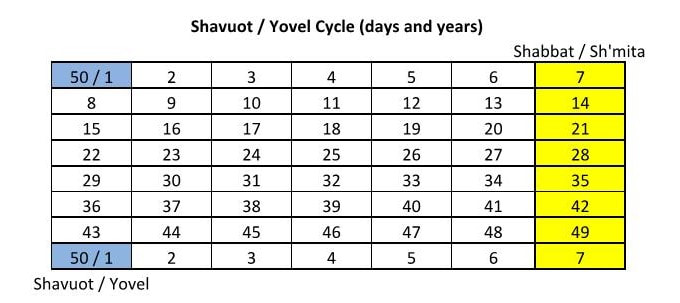
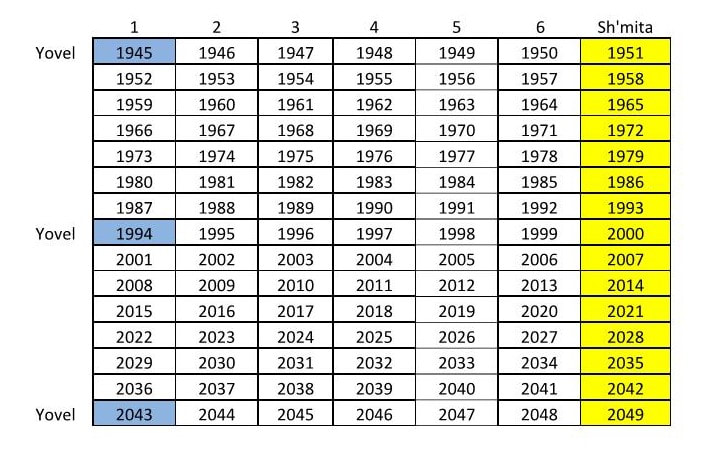
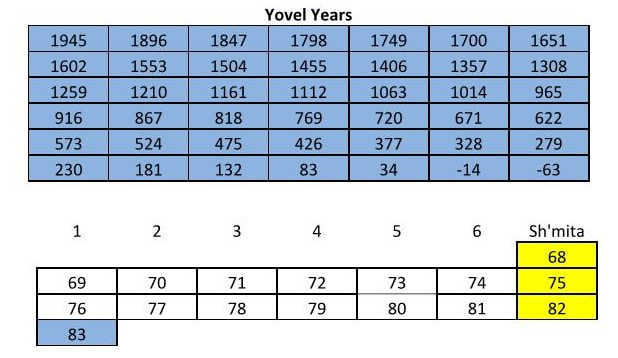
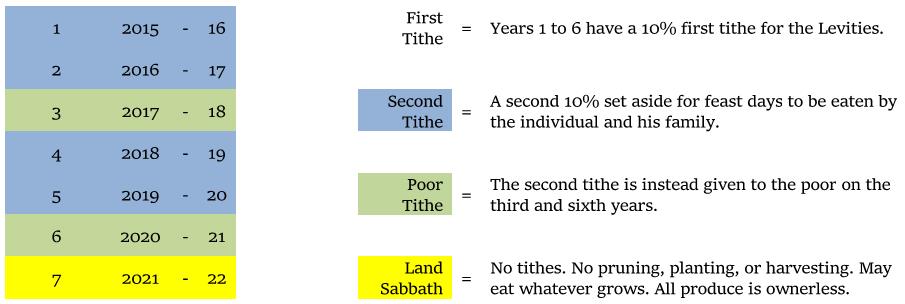
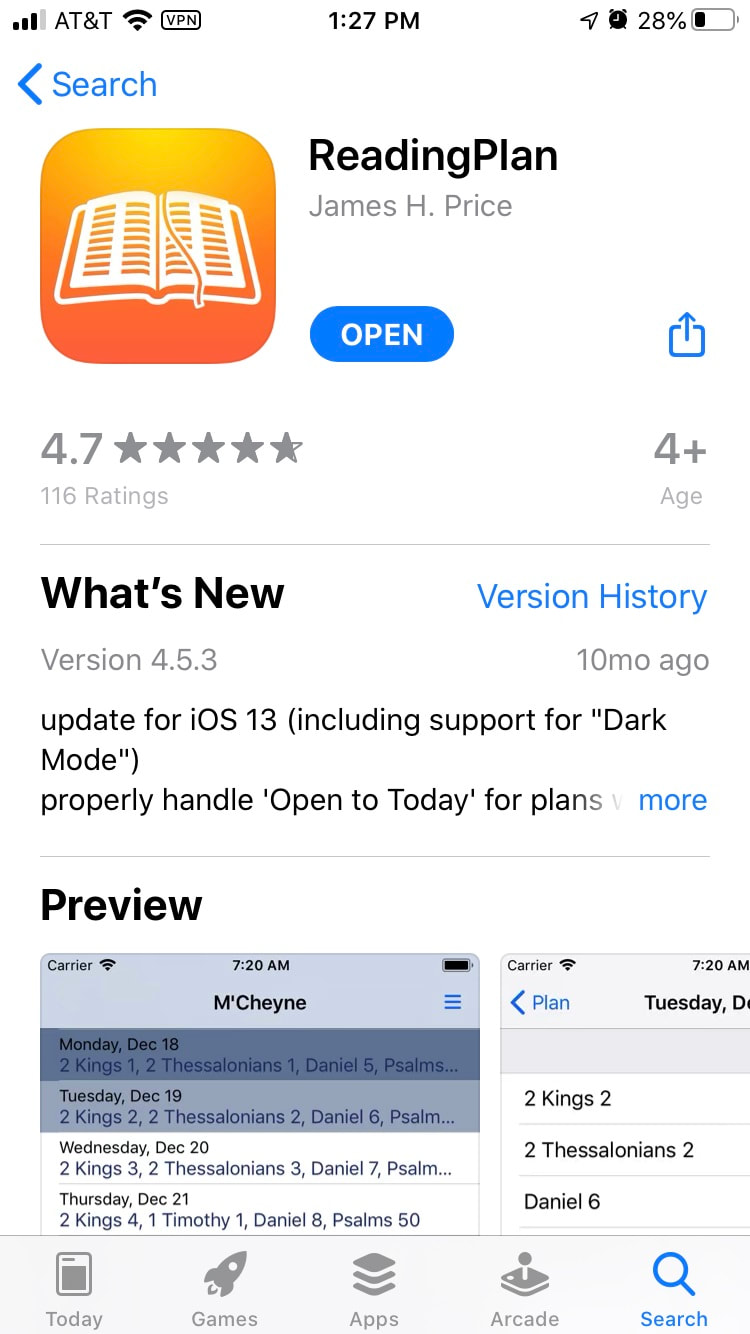
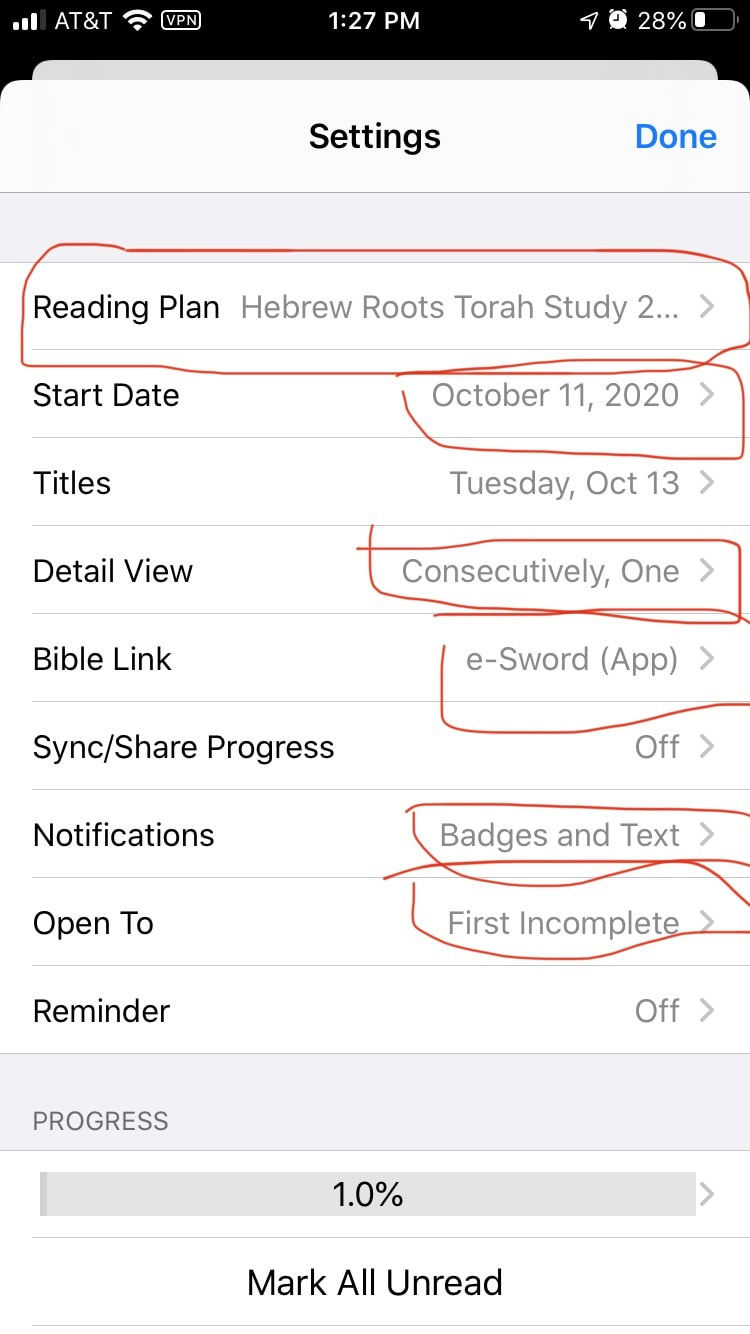
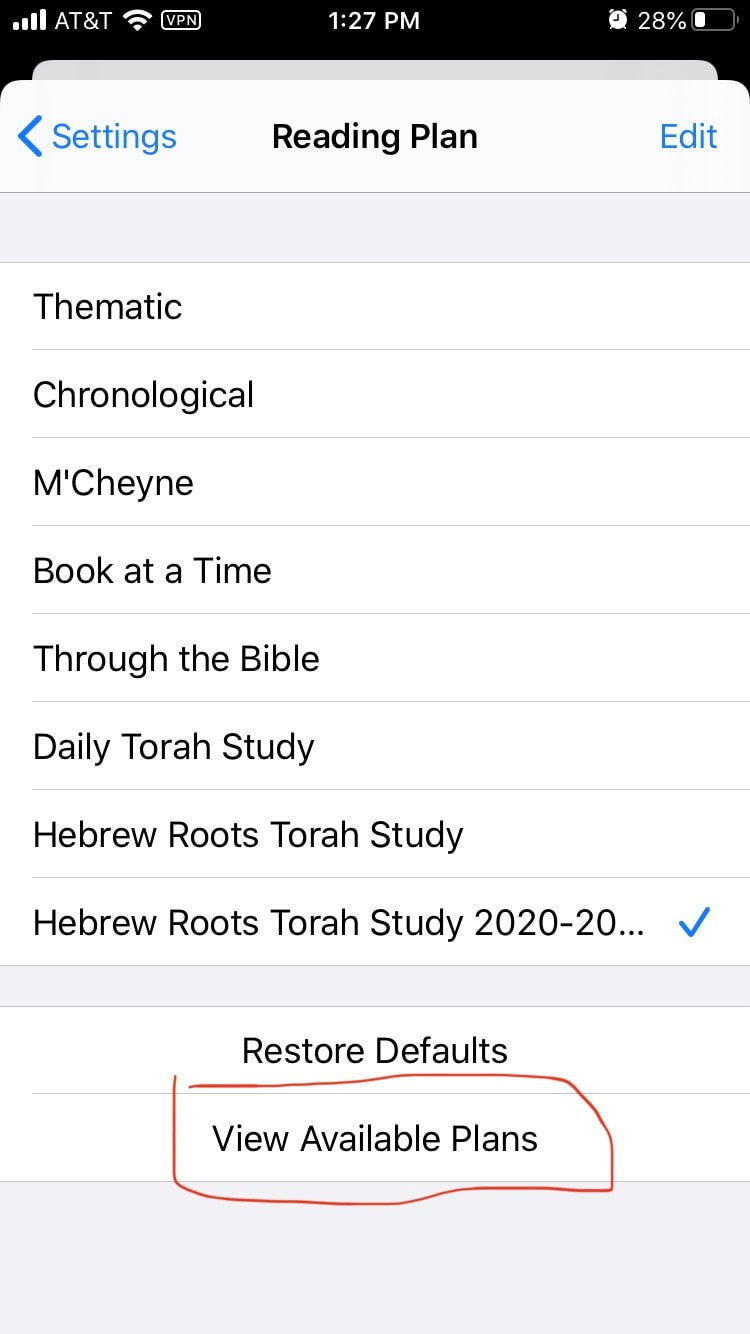
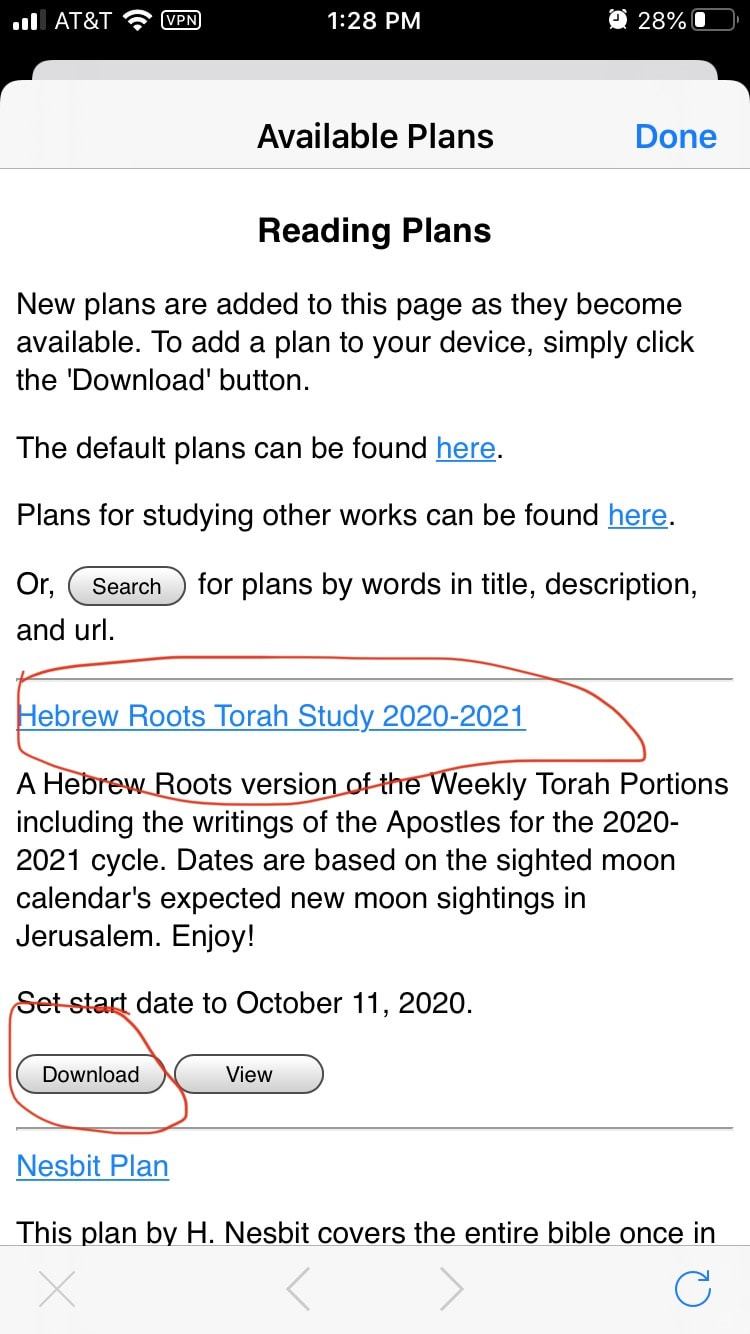
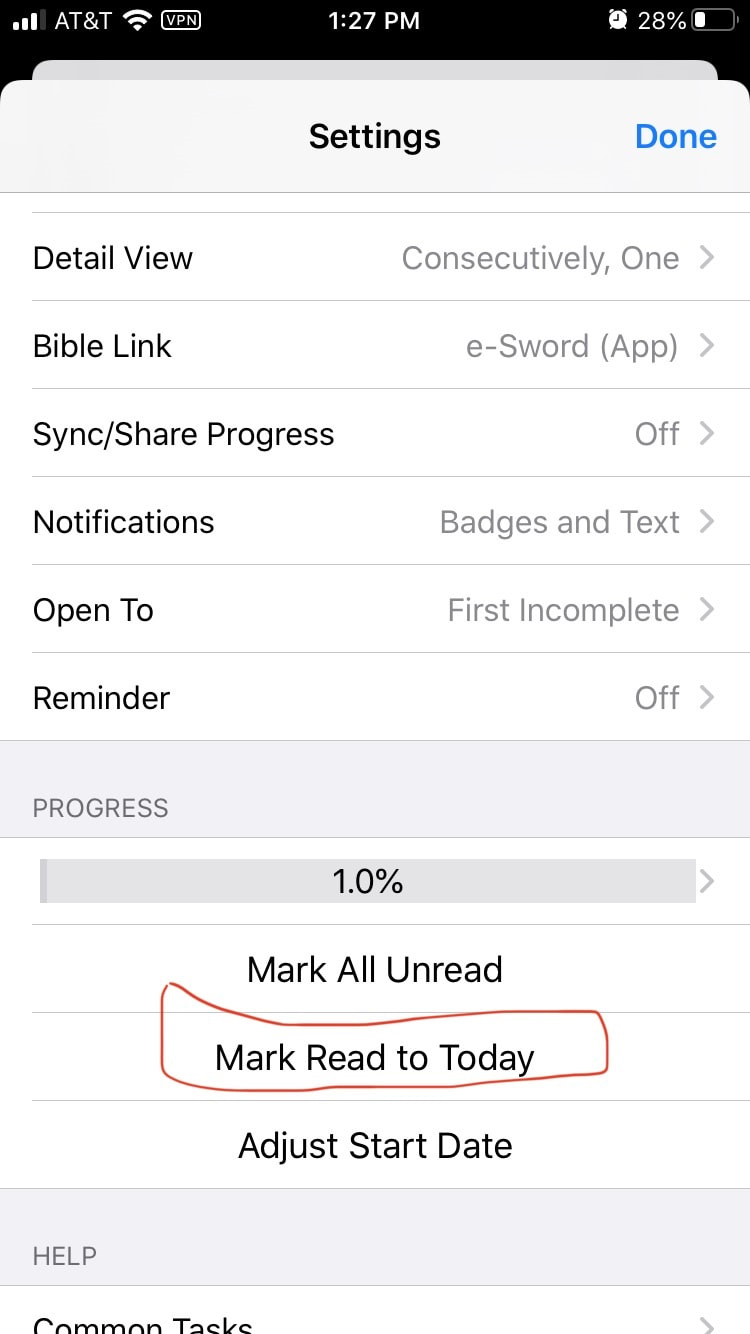
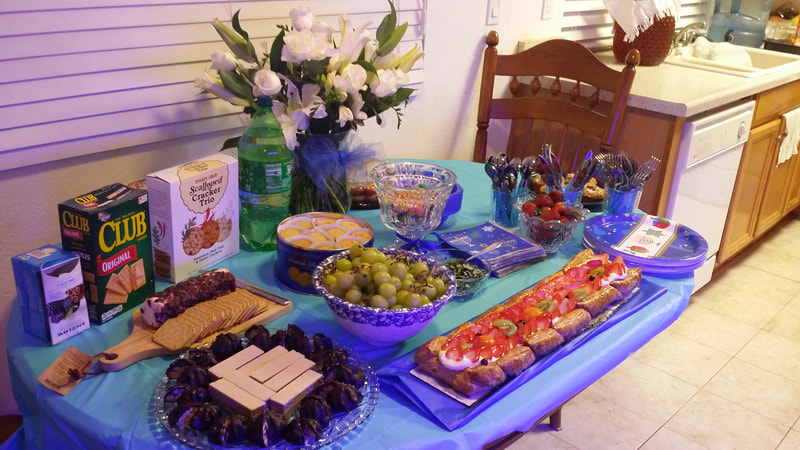


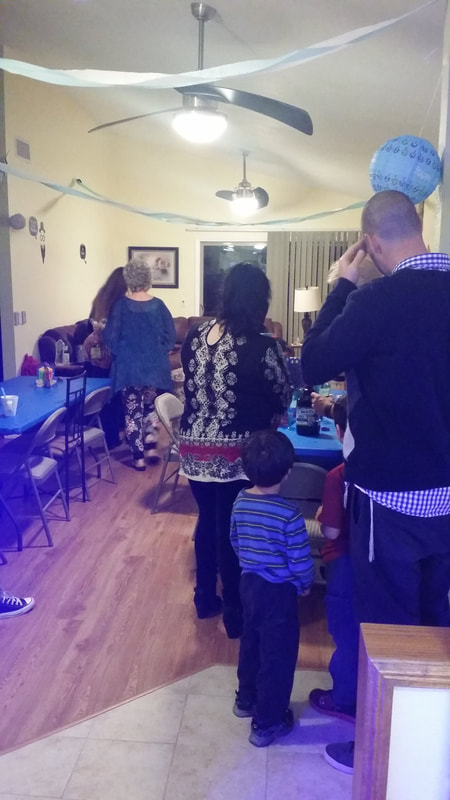
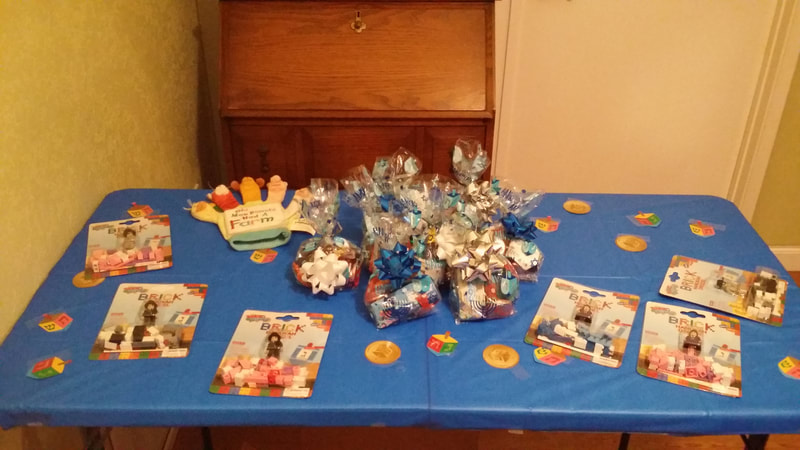
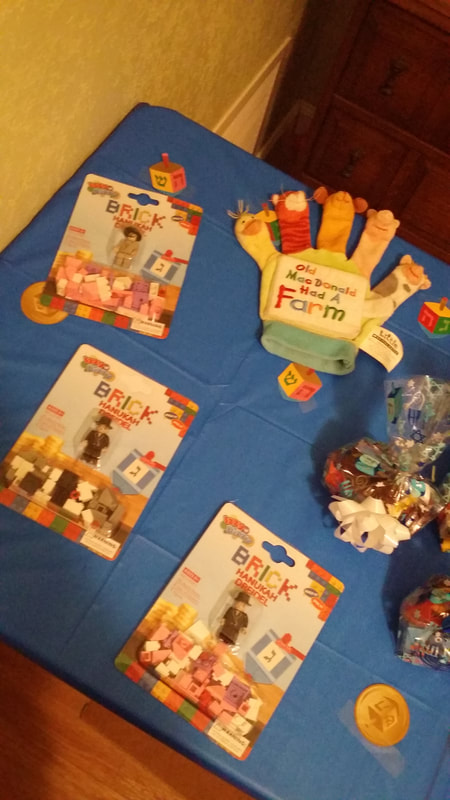
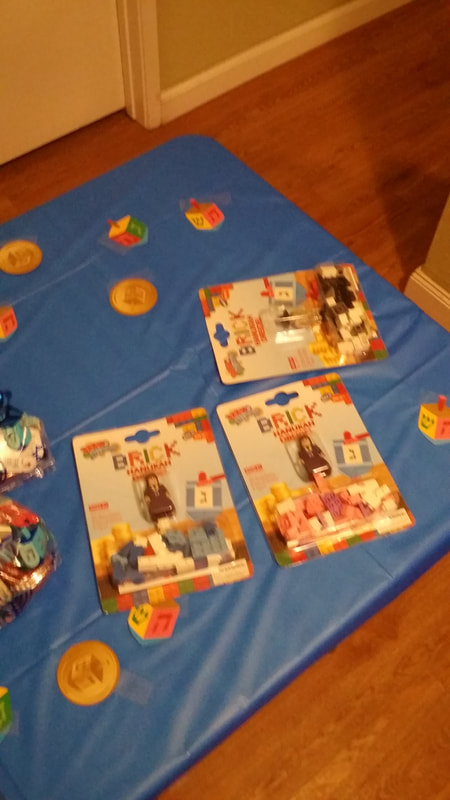





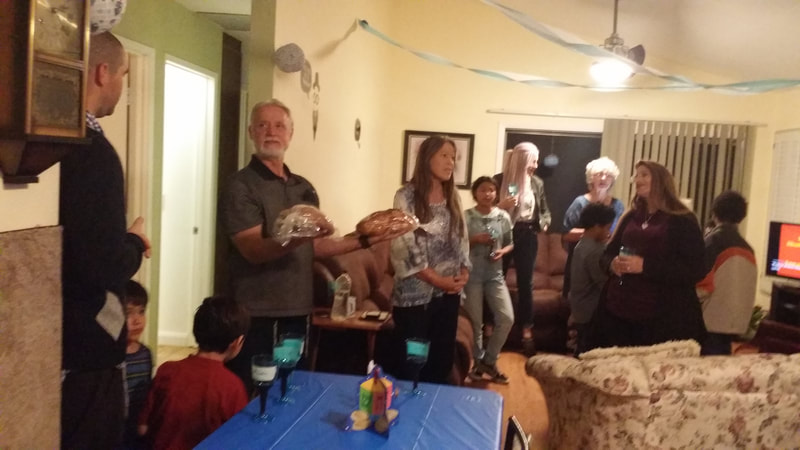
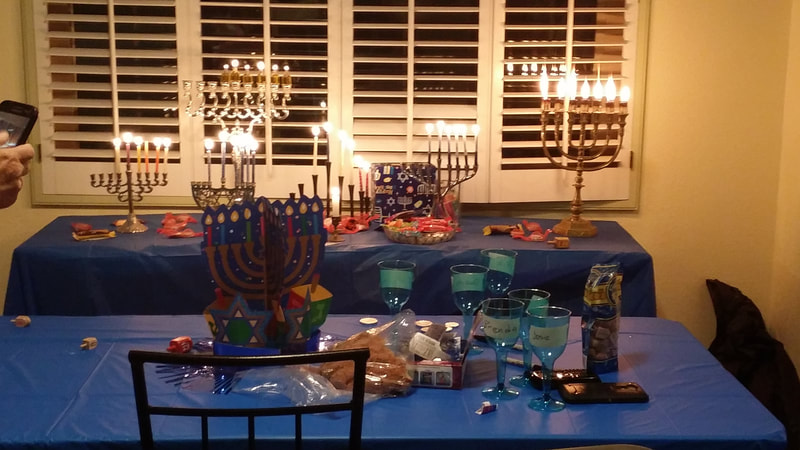
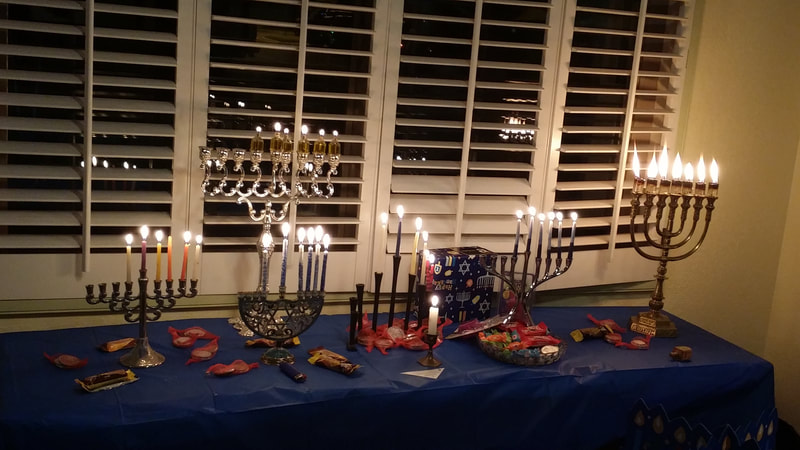


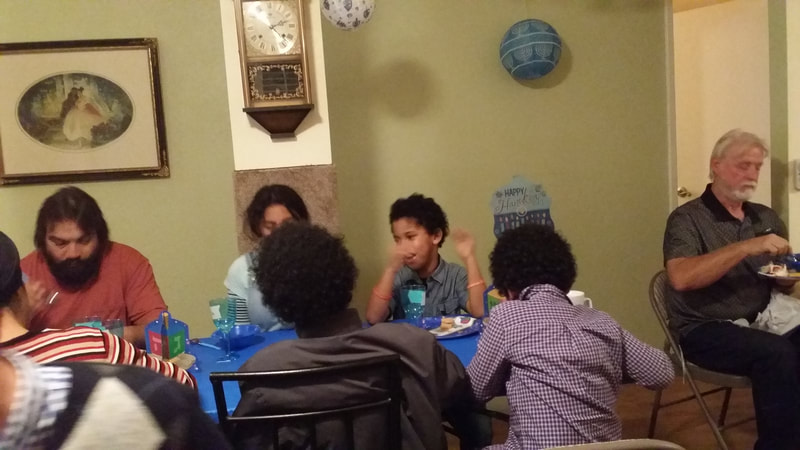

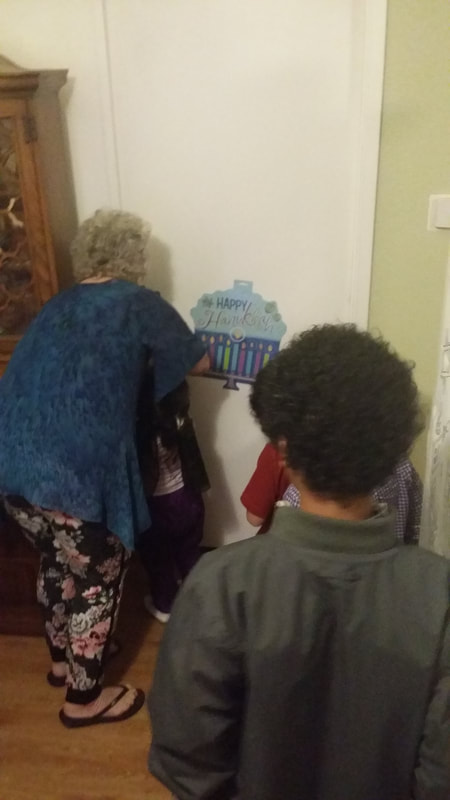
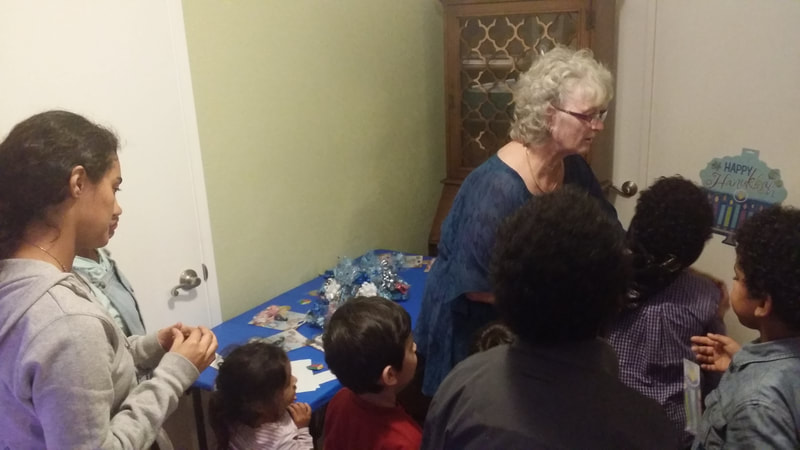
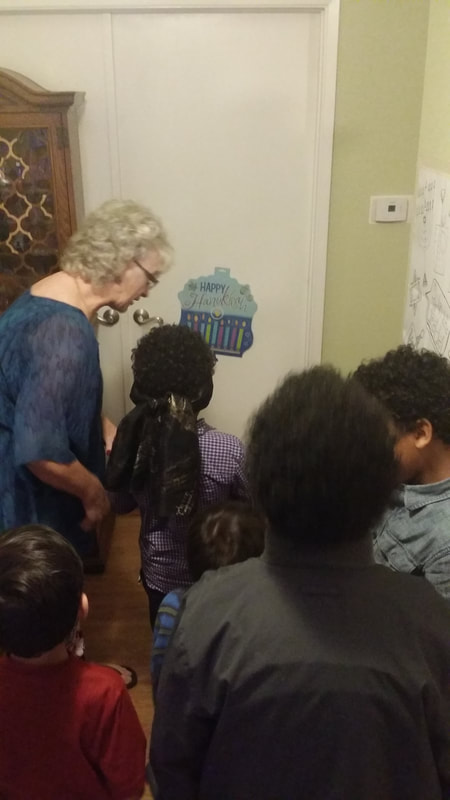
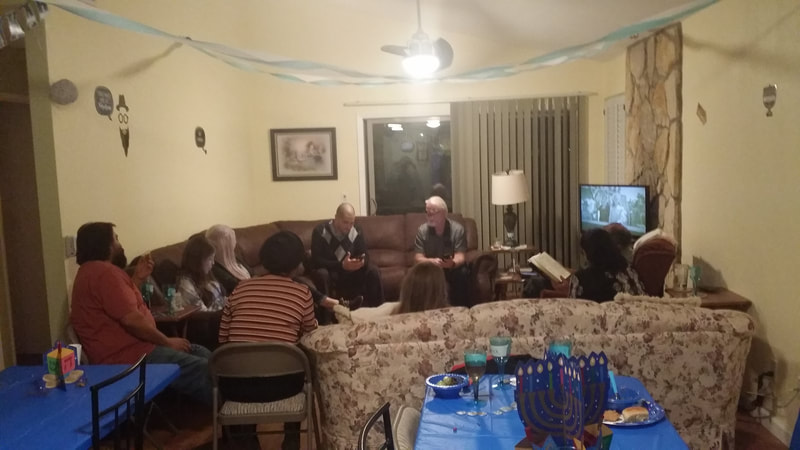
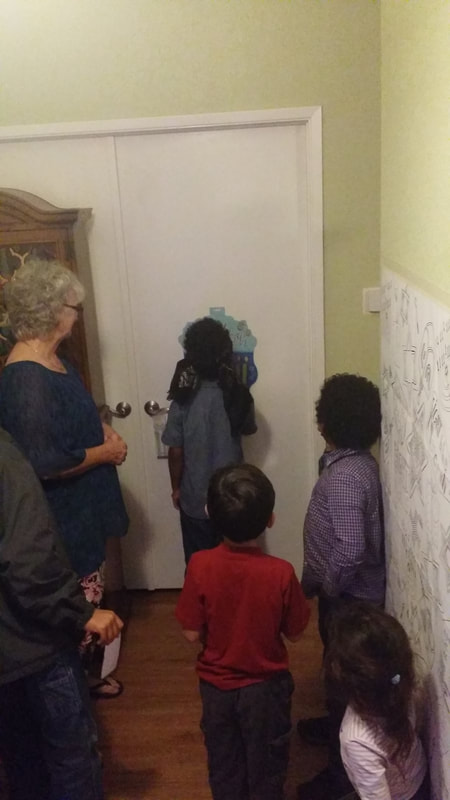
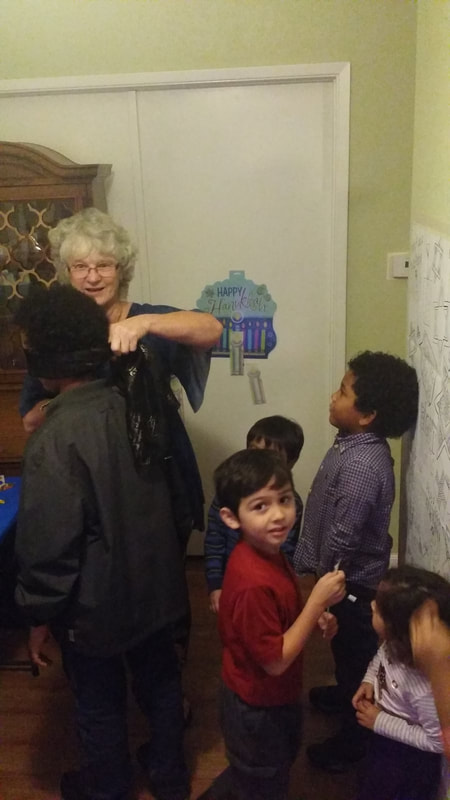

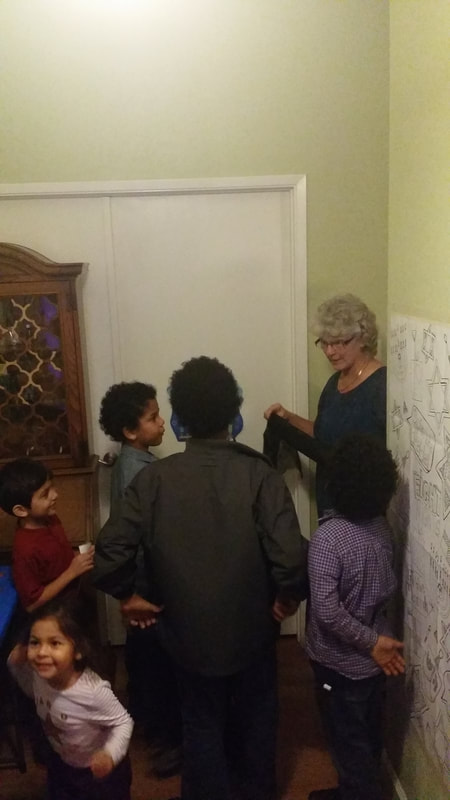
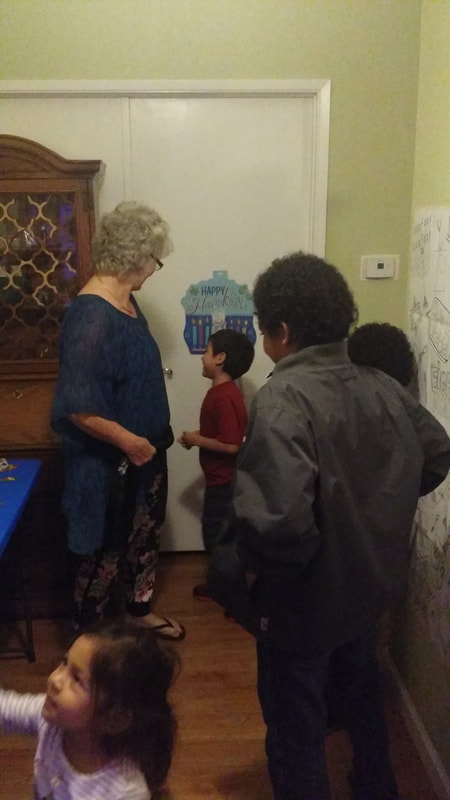
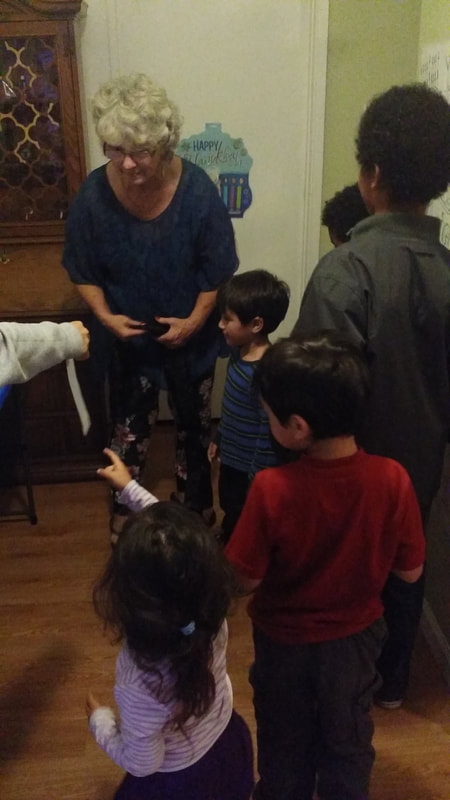
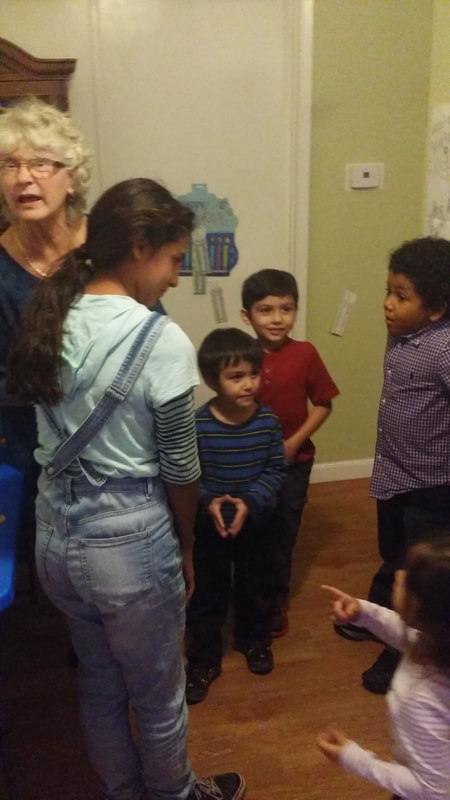
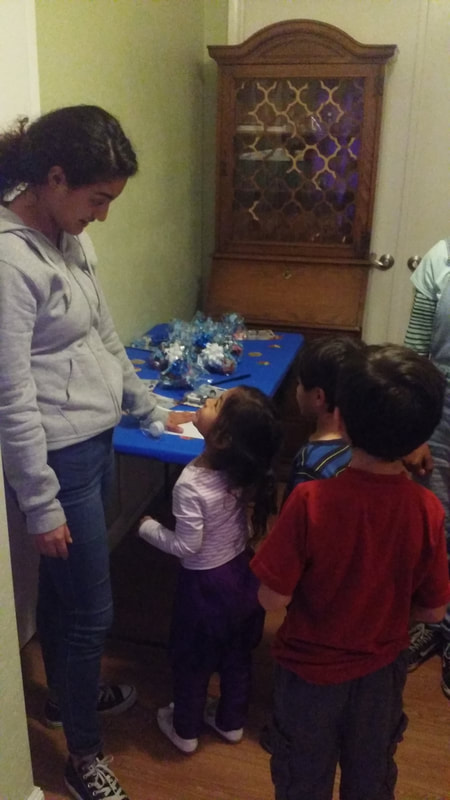
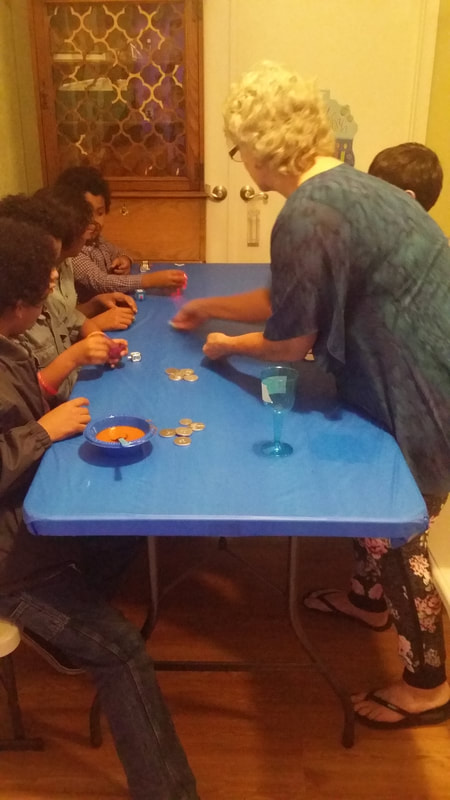
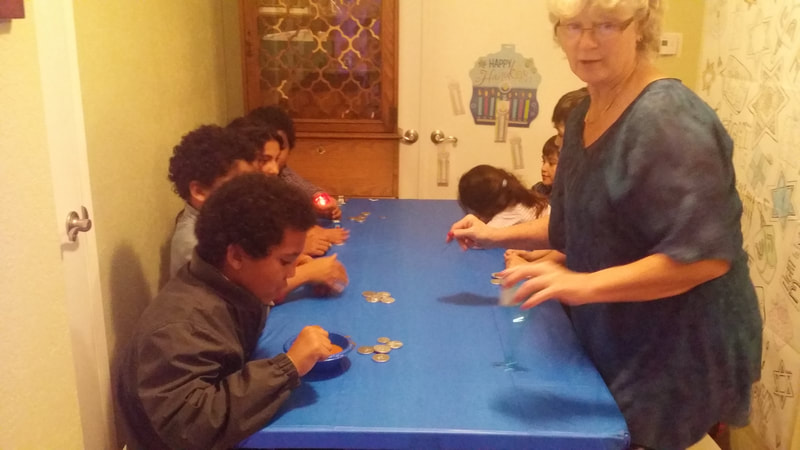
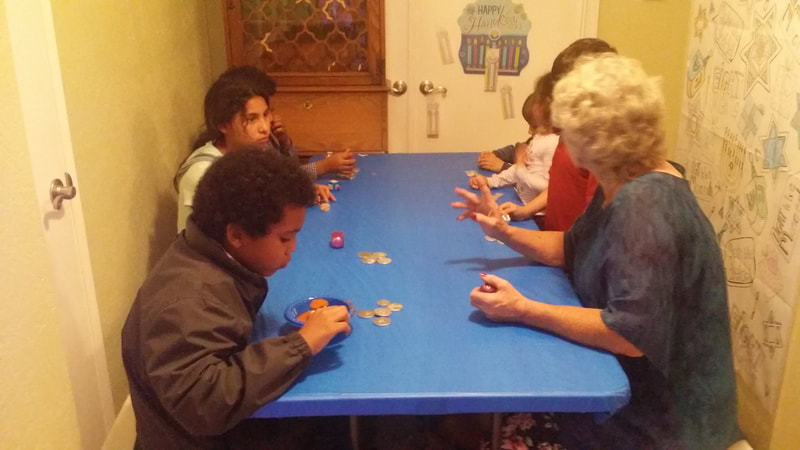
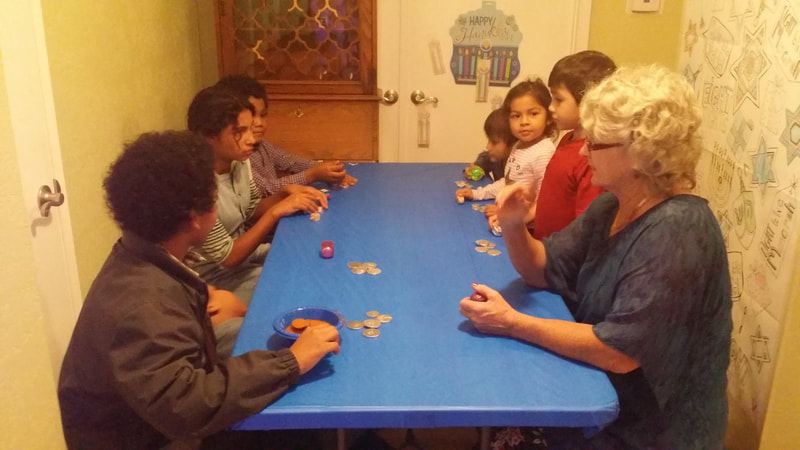
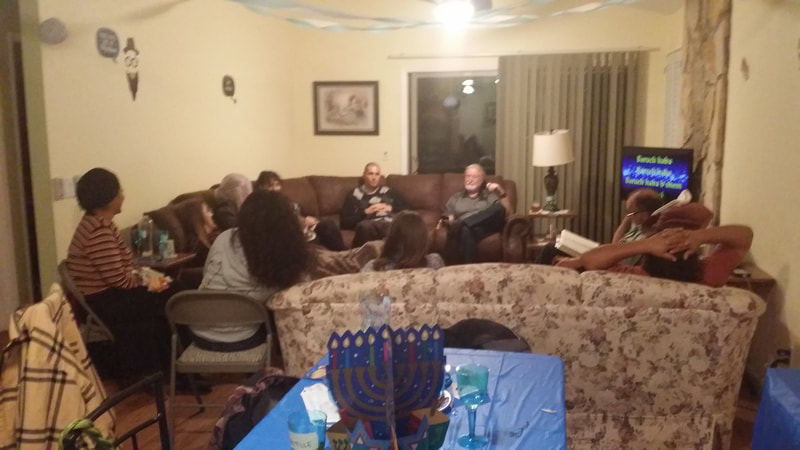
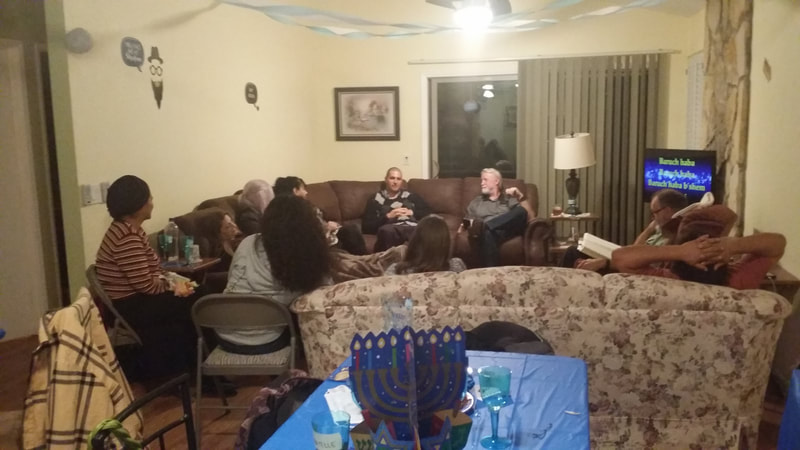
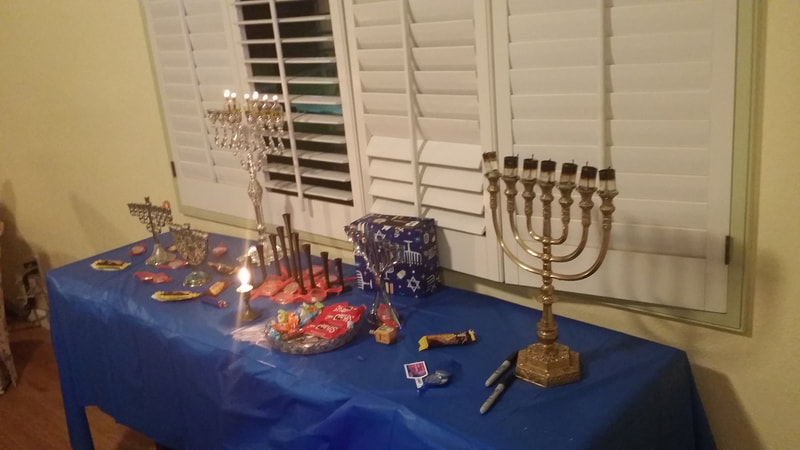
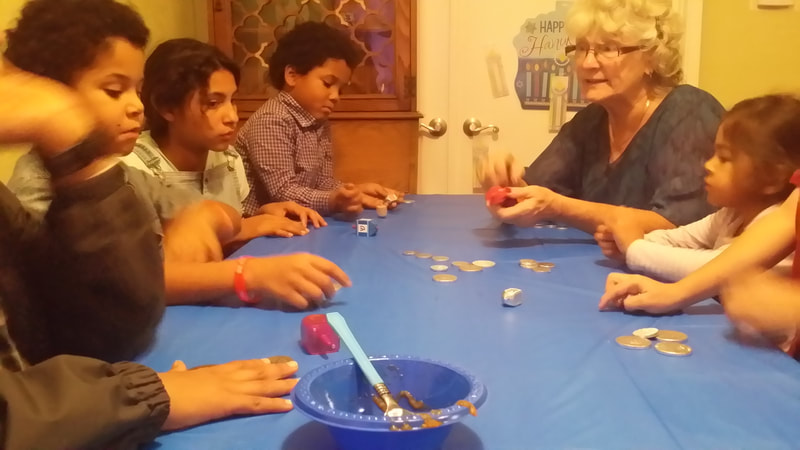

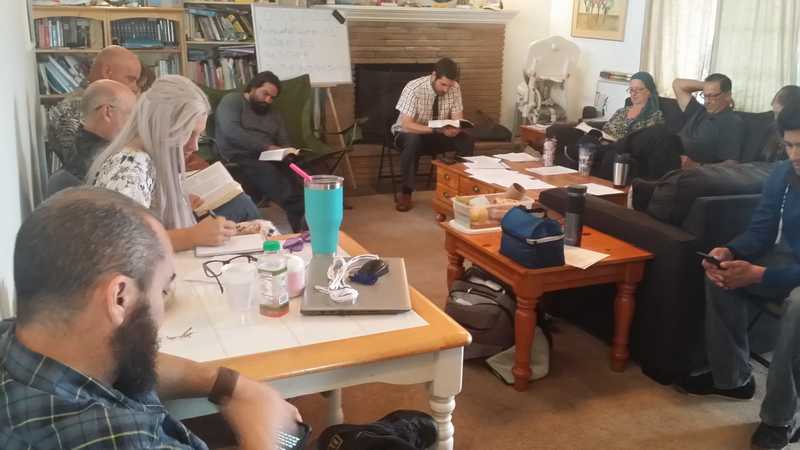
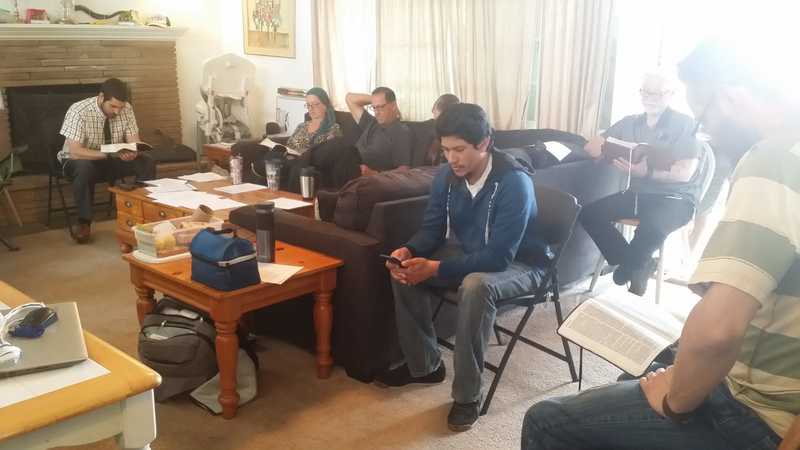


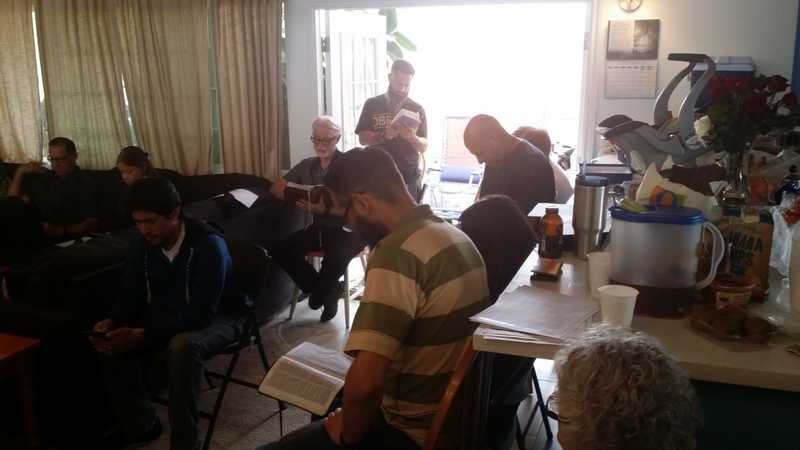
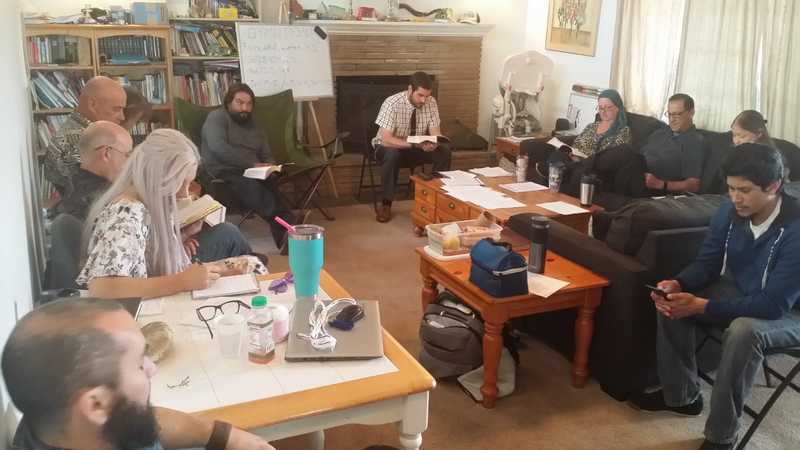
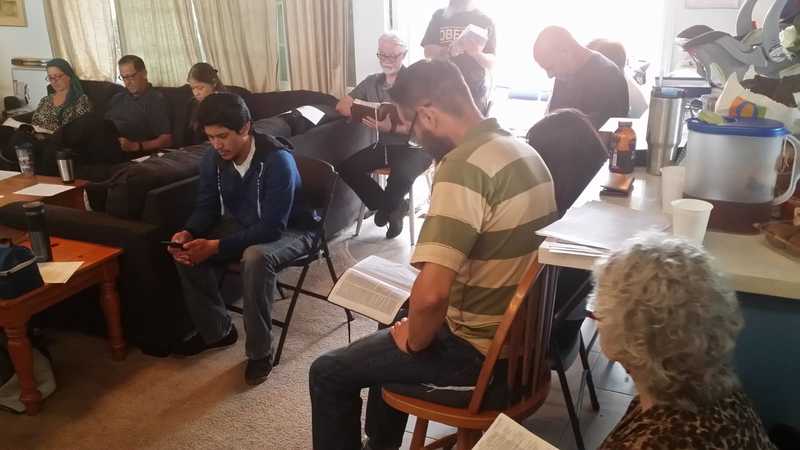
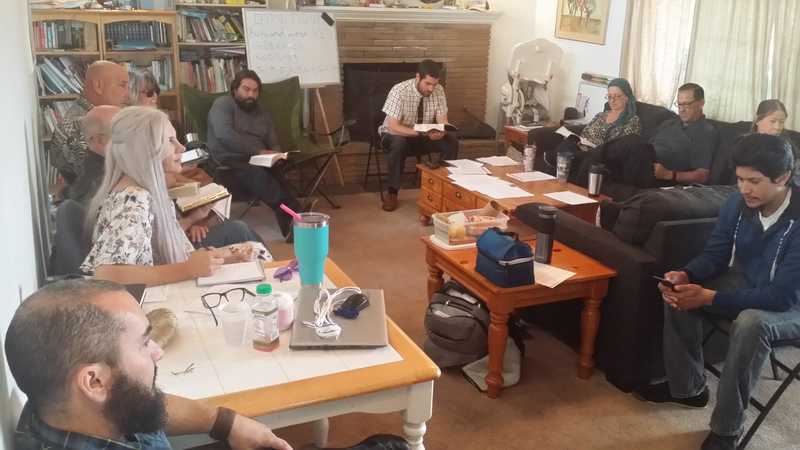
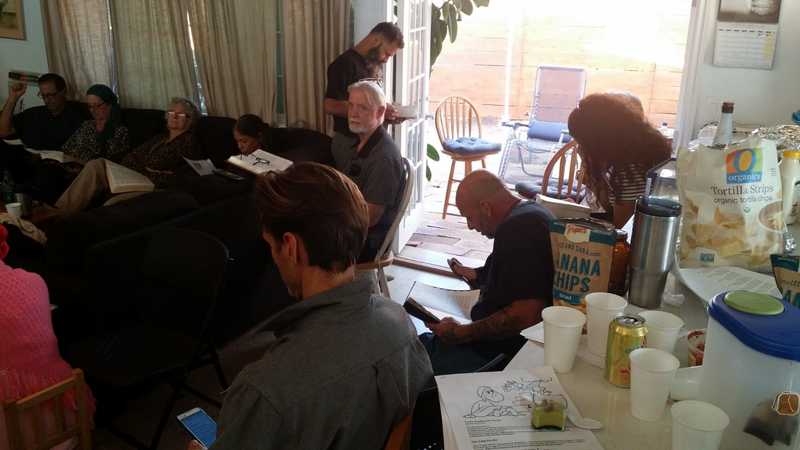

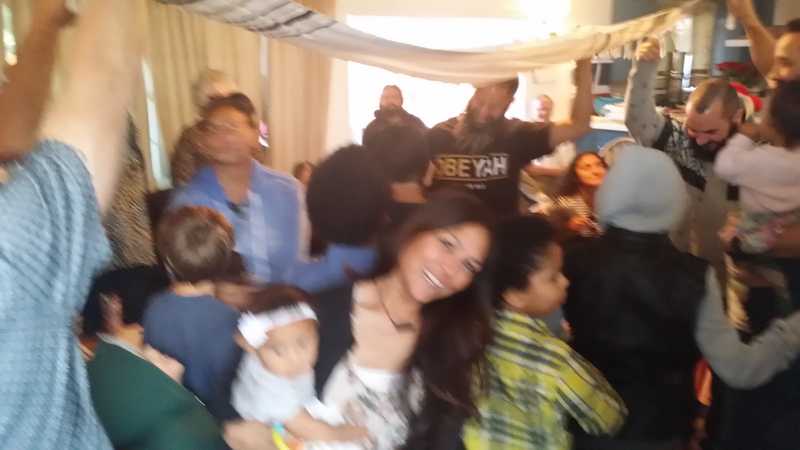
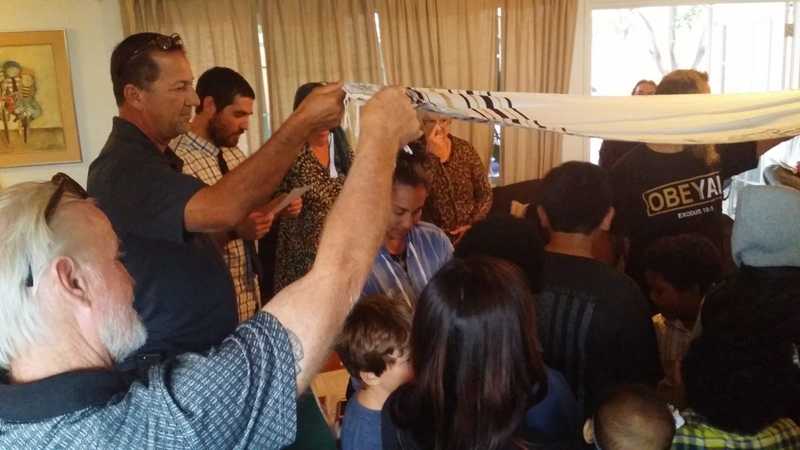

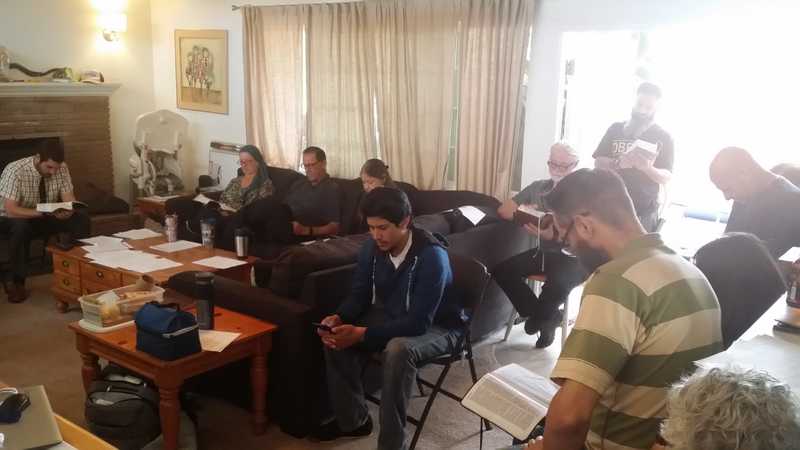
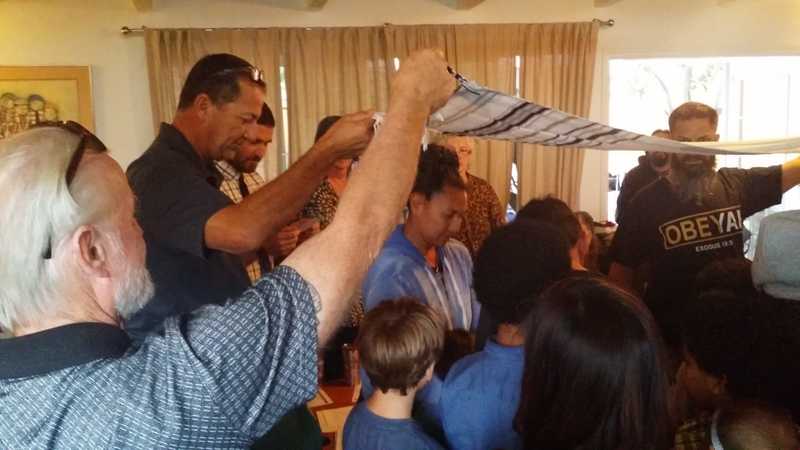
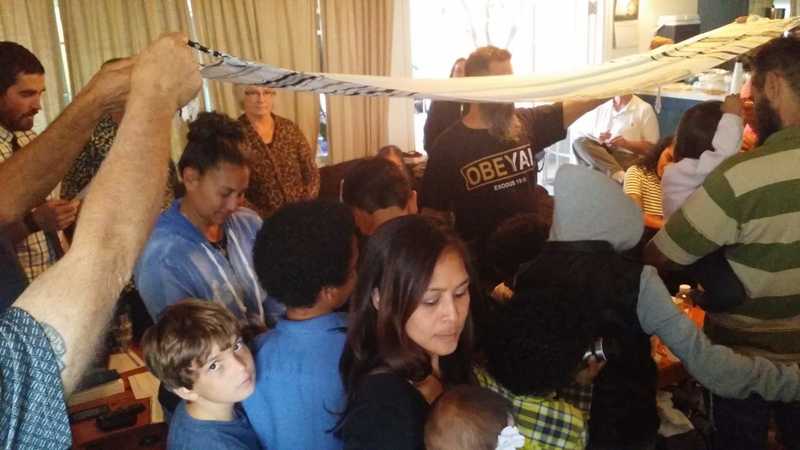
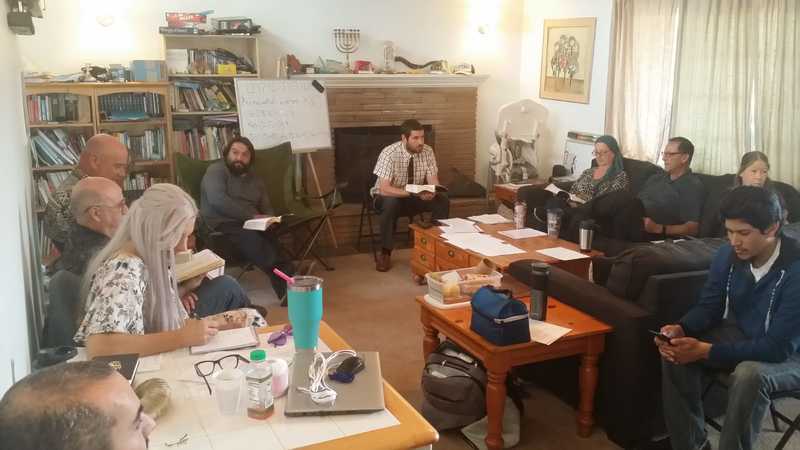
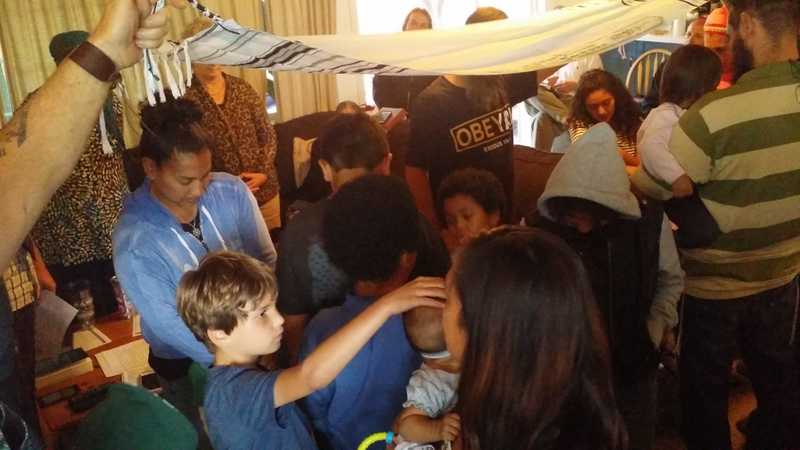
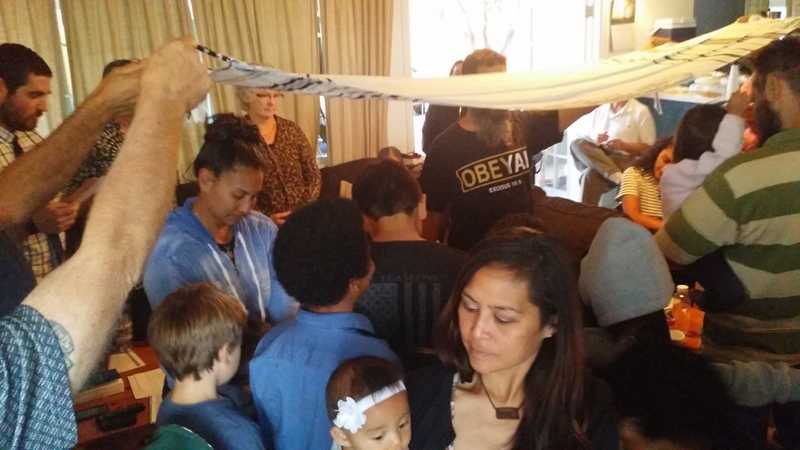
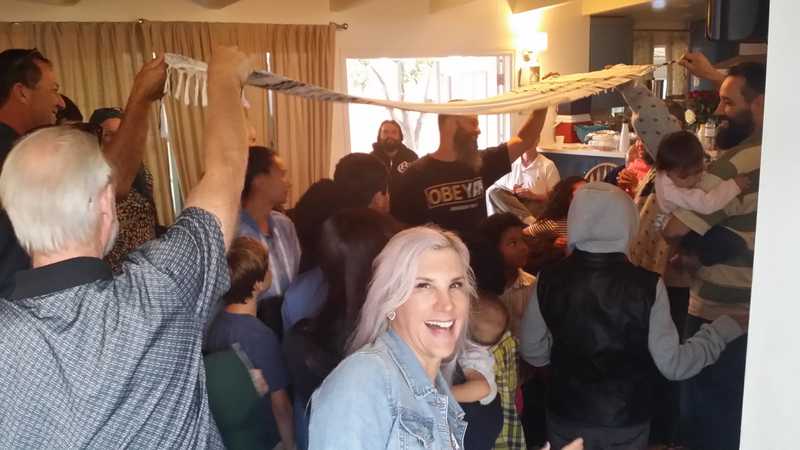
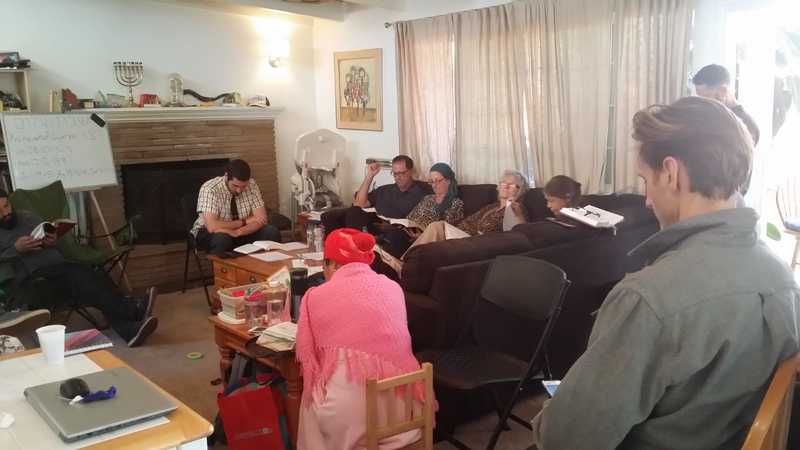



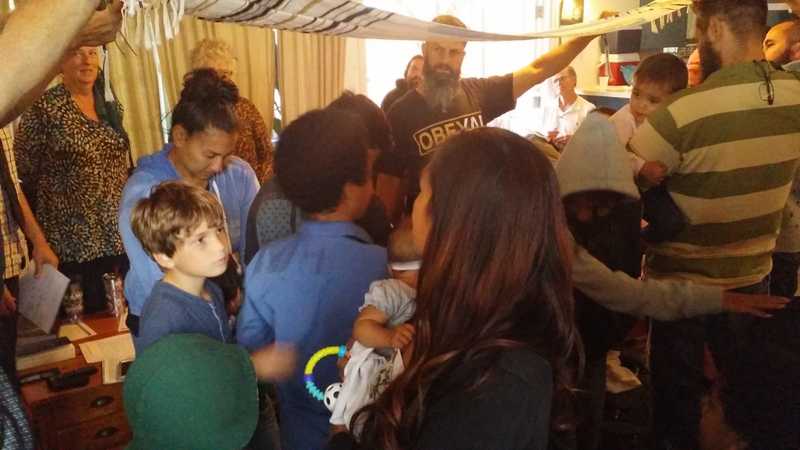
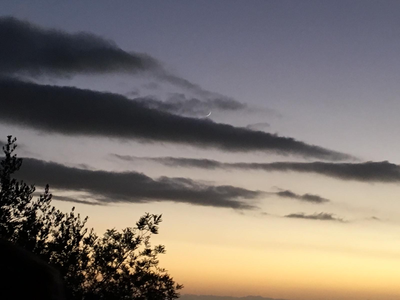
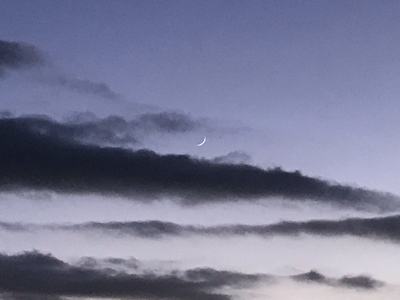
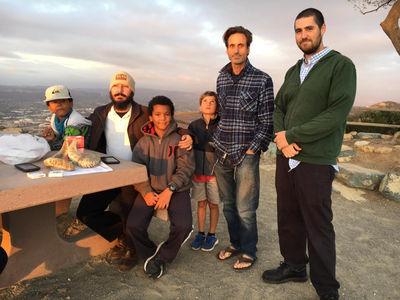
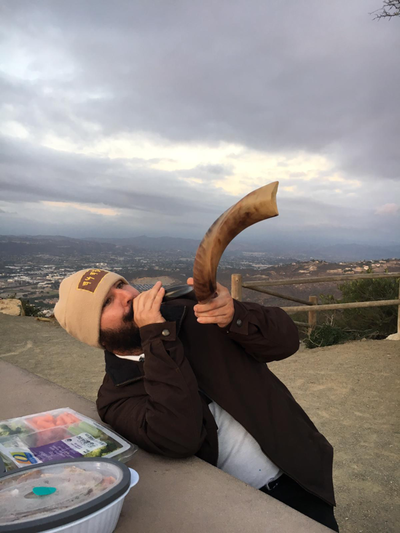

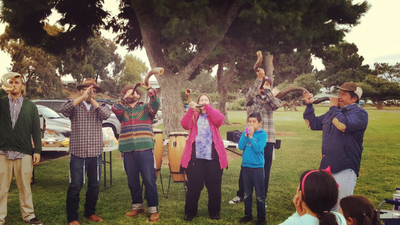
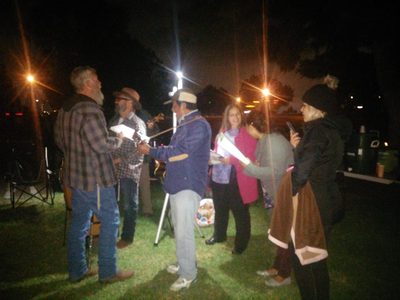
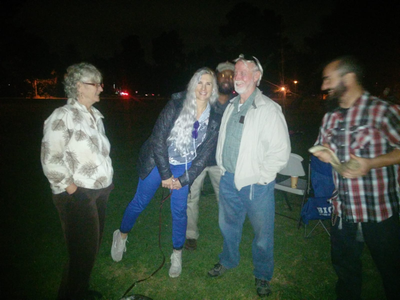
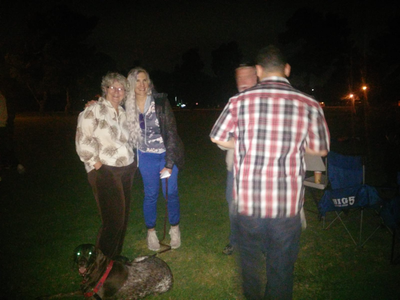
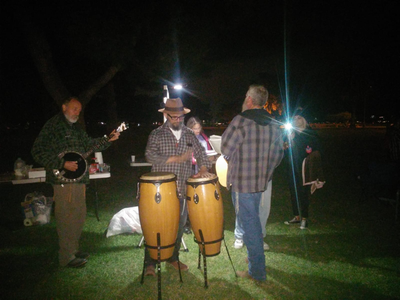
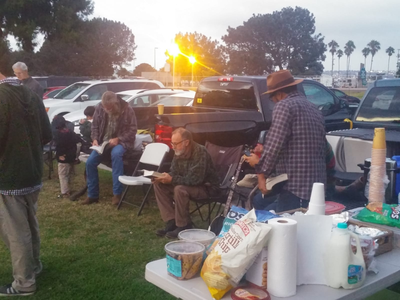
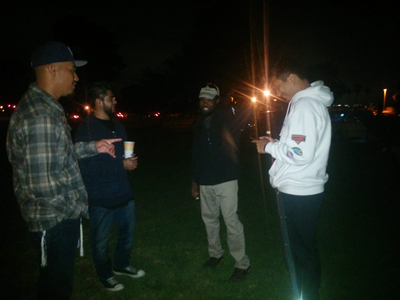
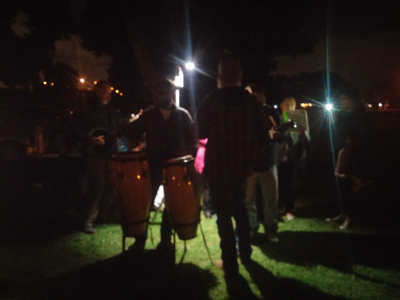
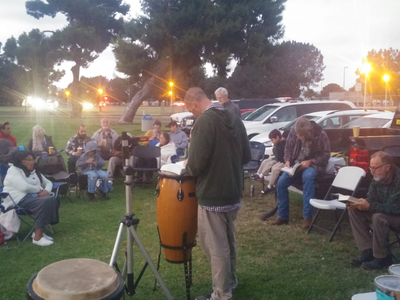
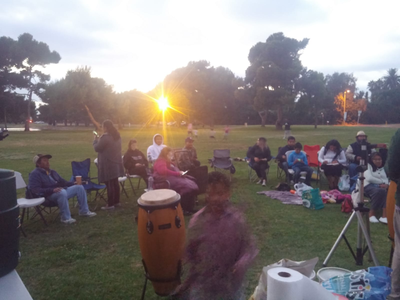
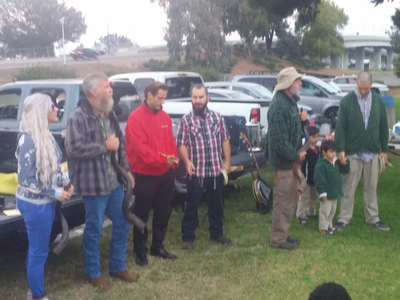
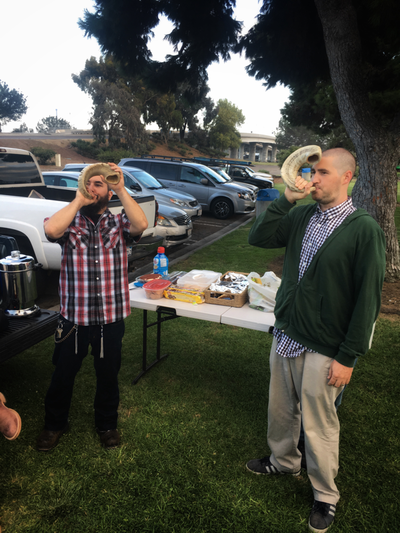
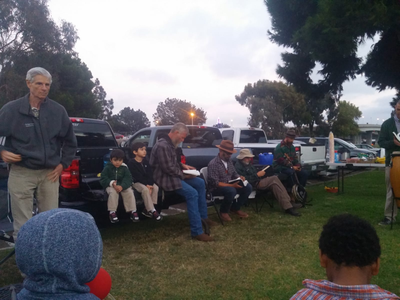
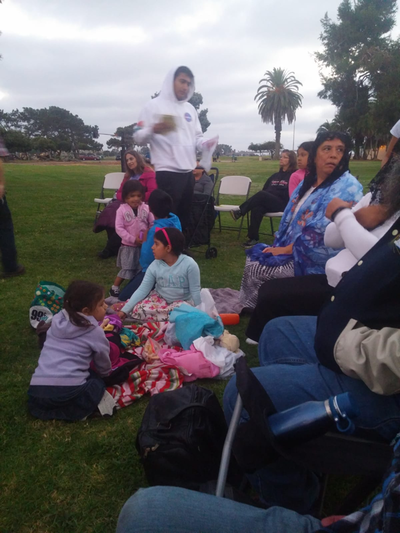
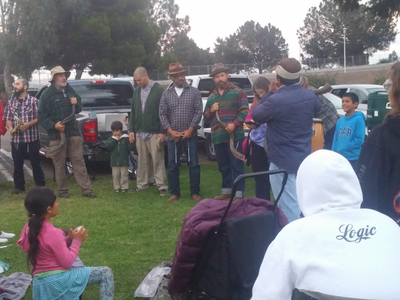
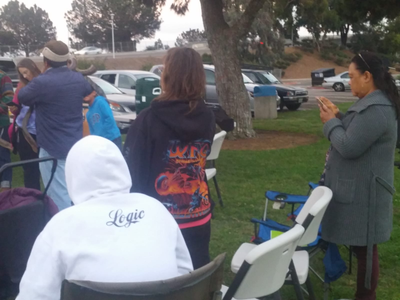
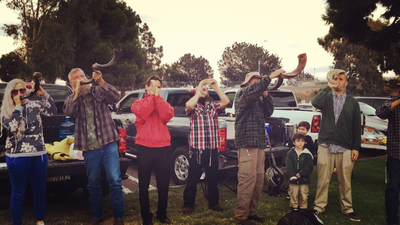
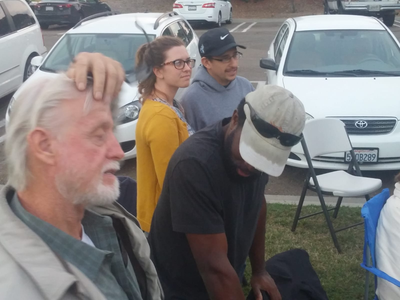
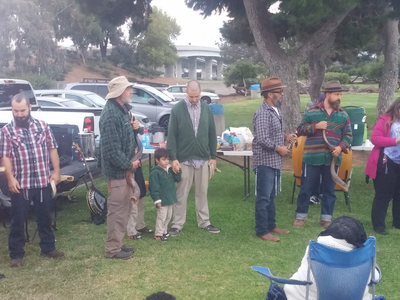
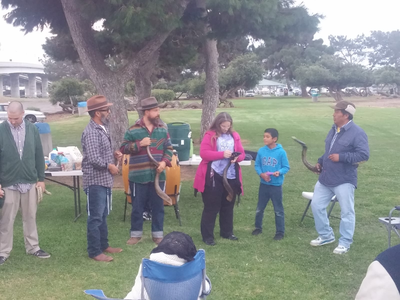
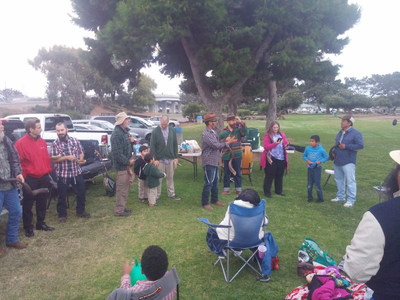
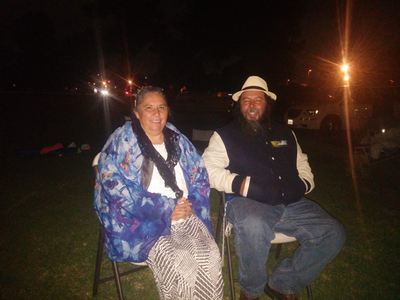
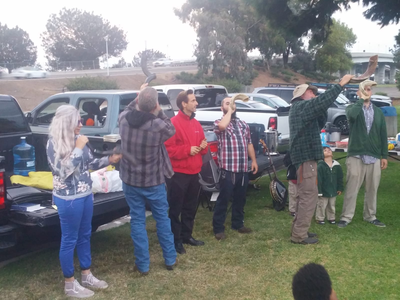
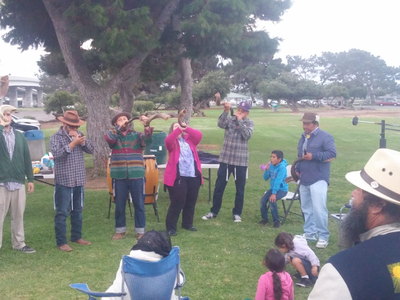
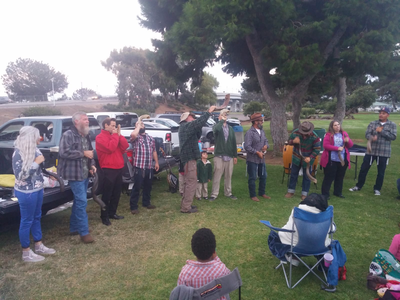
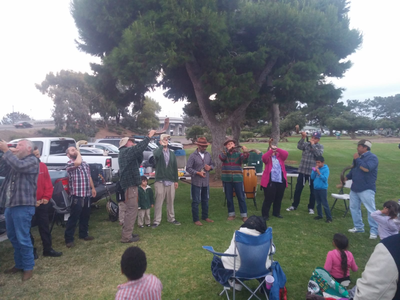
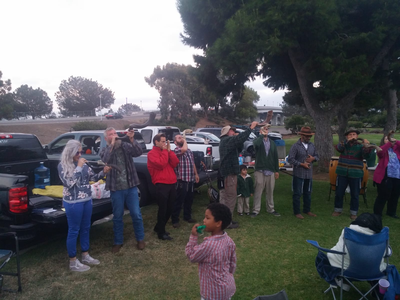
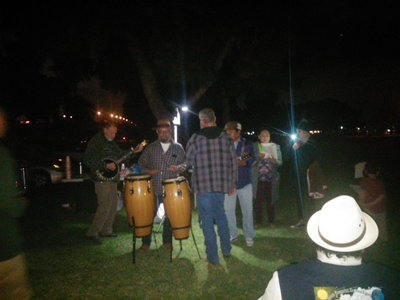
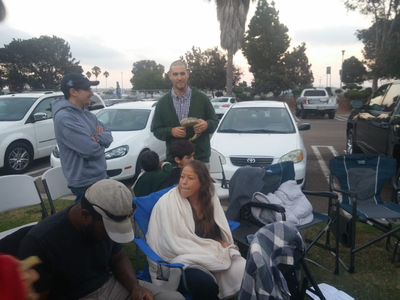

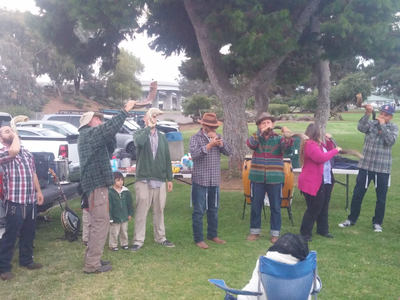
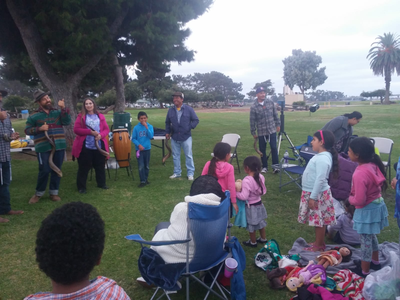
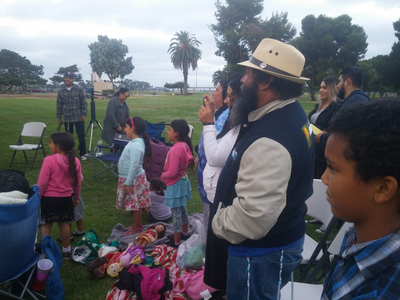


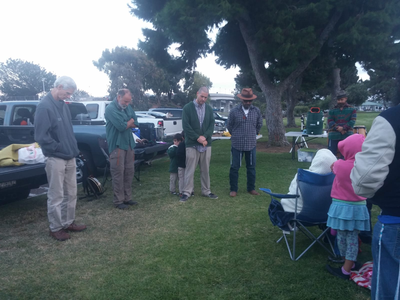
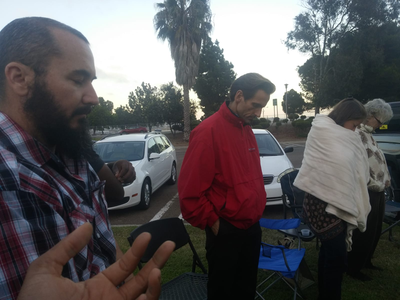
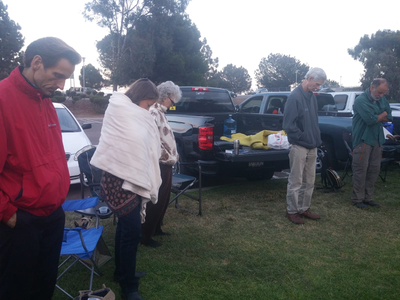

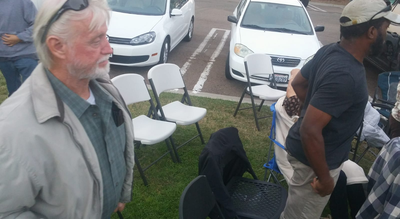
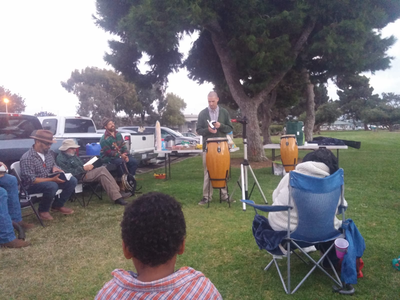
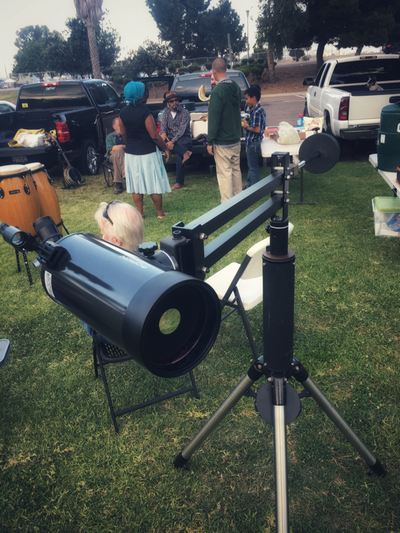
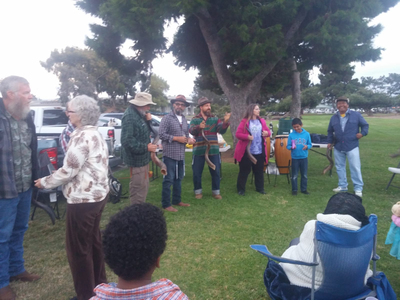
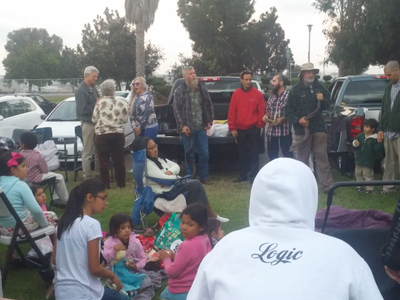
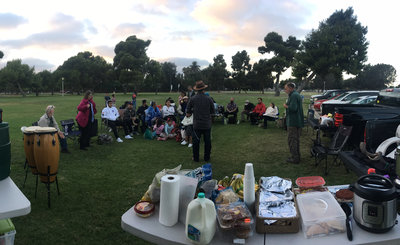
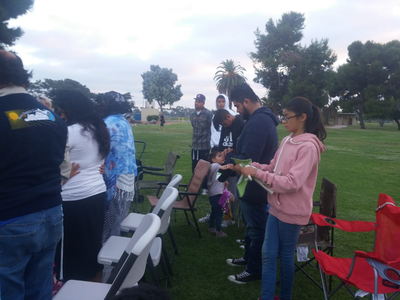
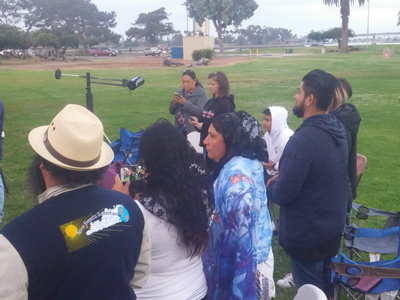
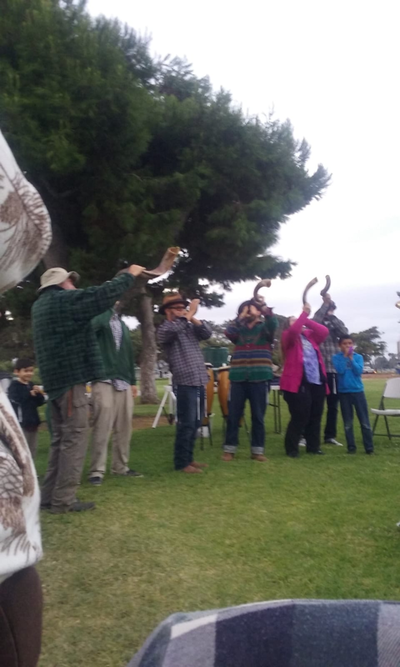
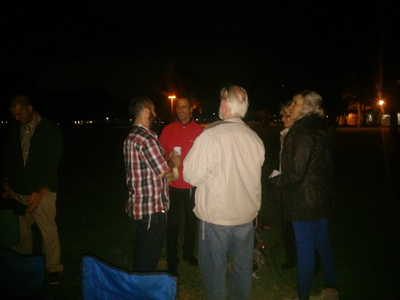
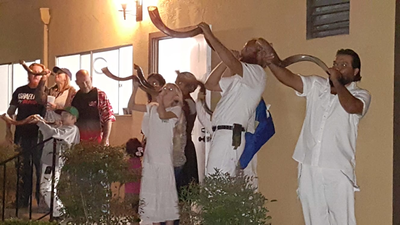
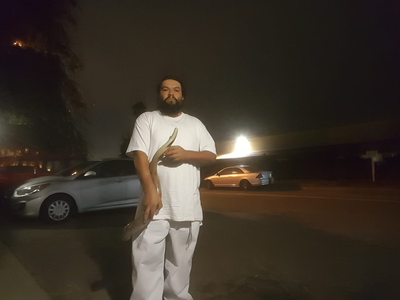
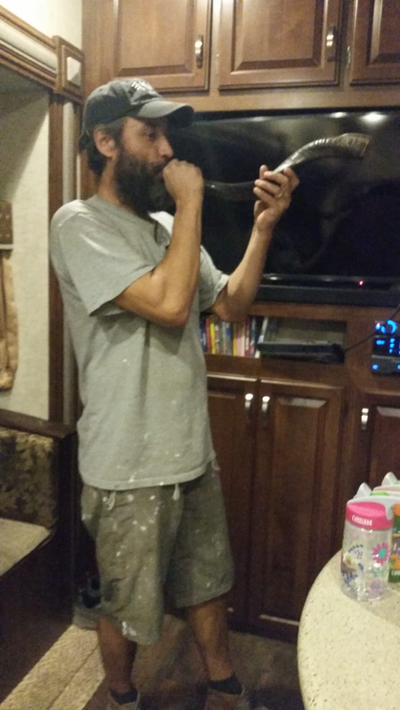
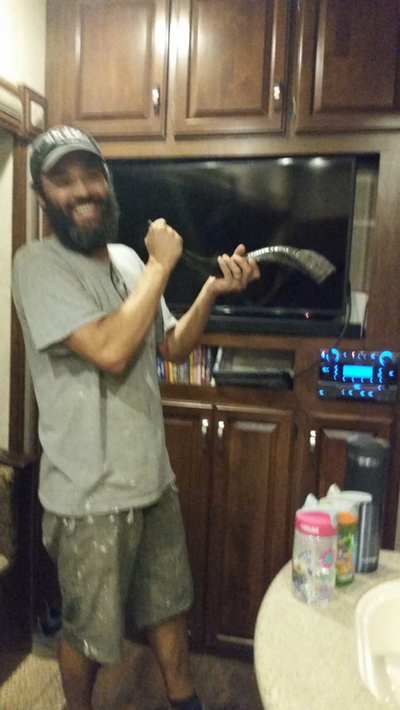
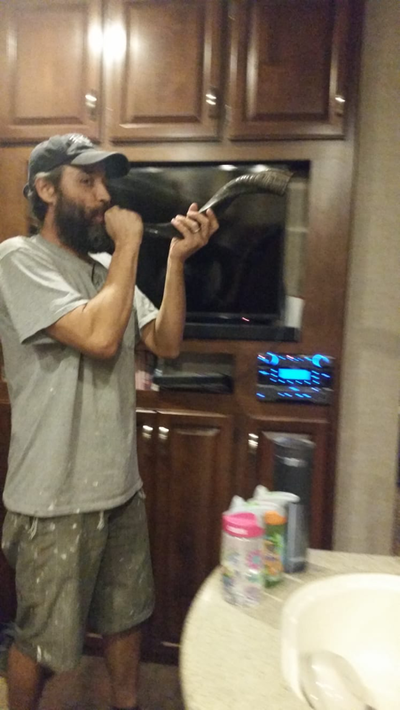
 RSS Feed
RSS Feed